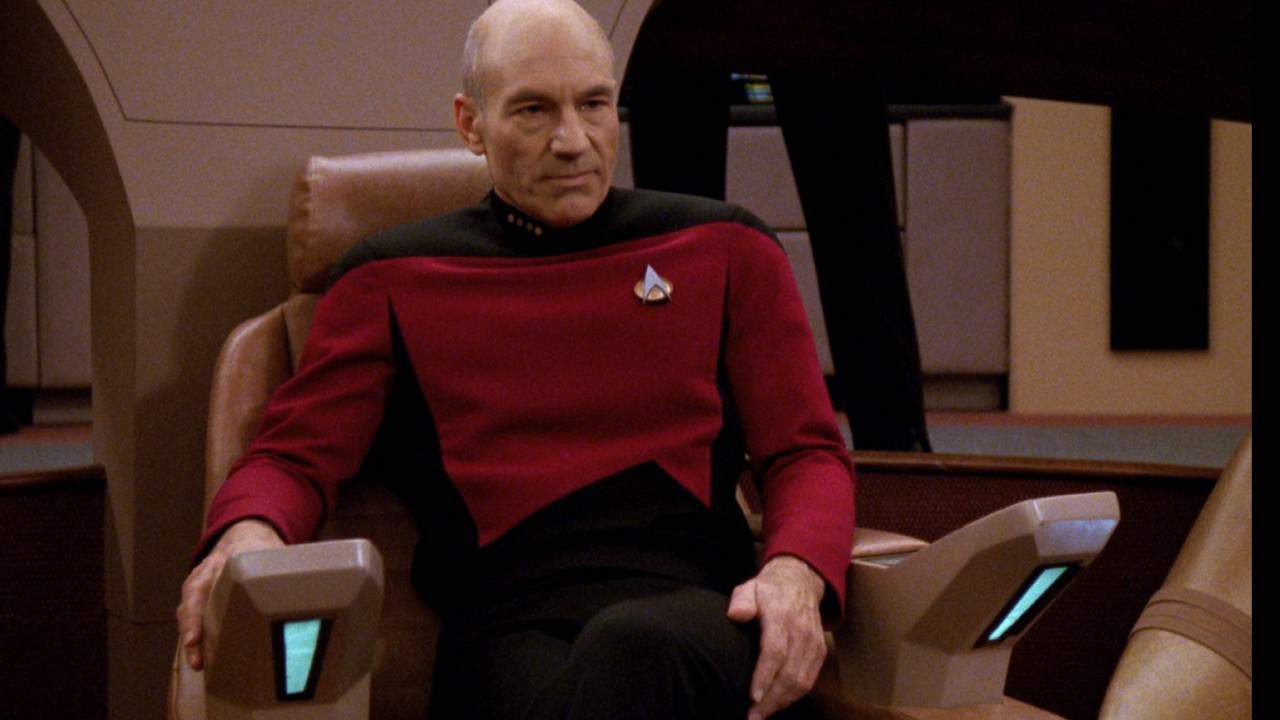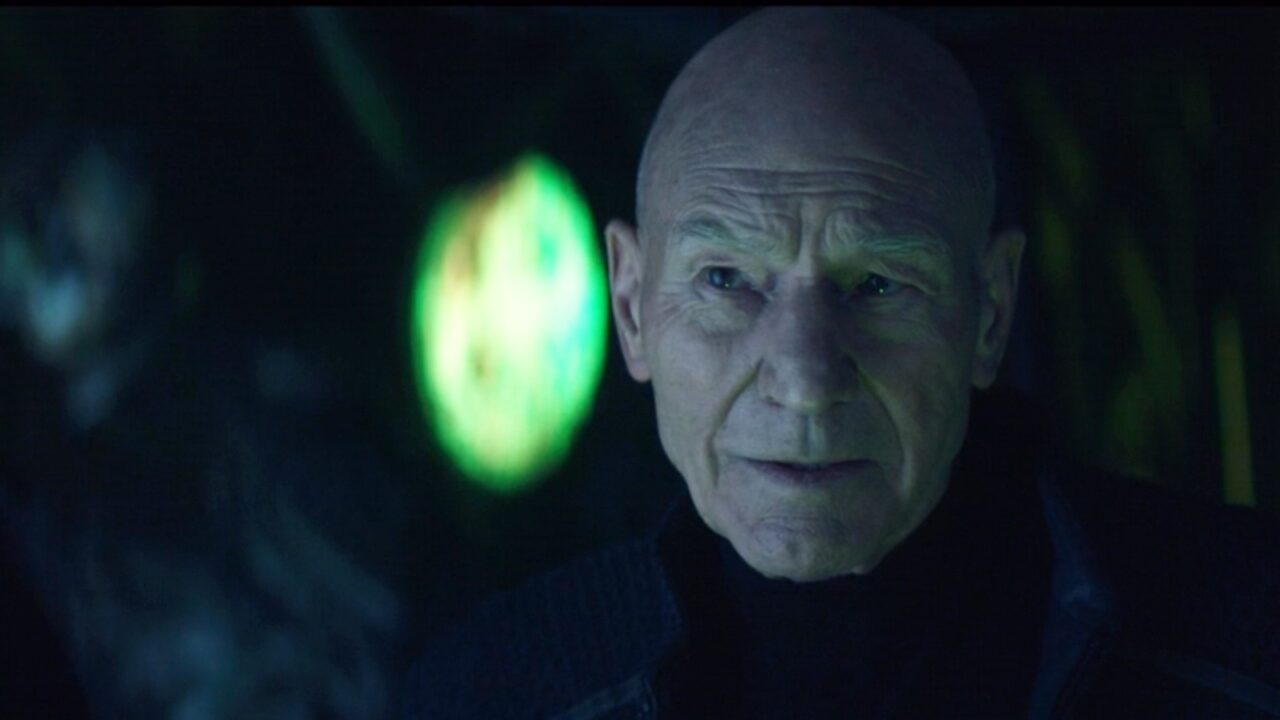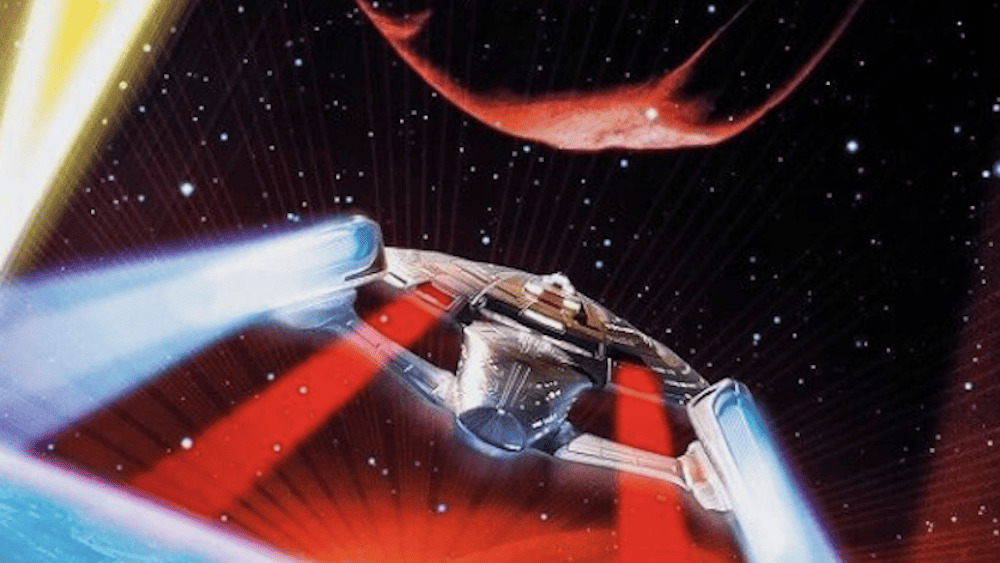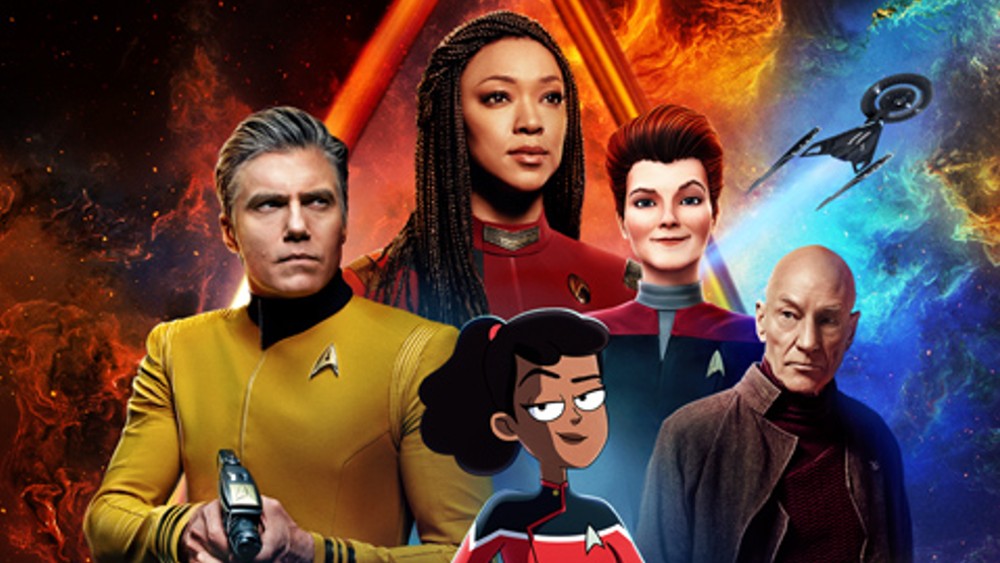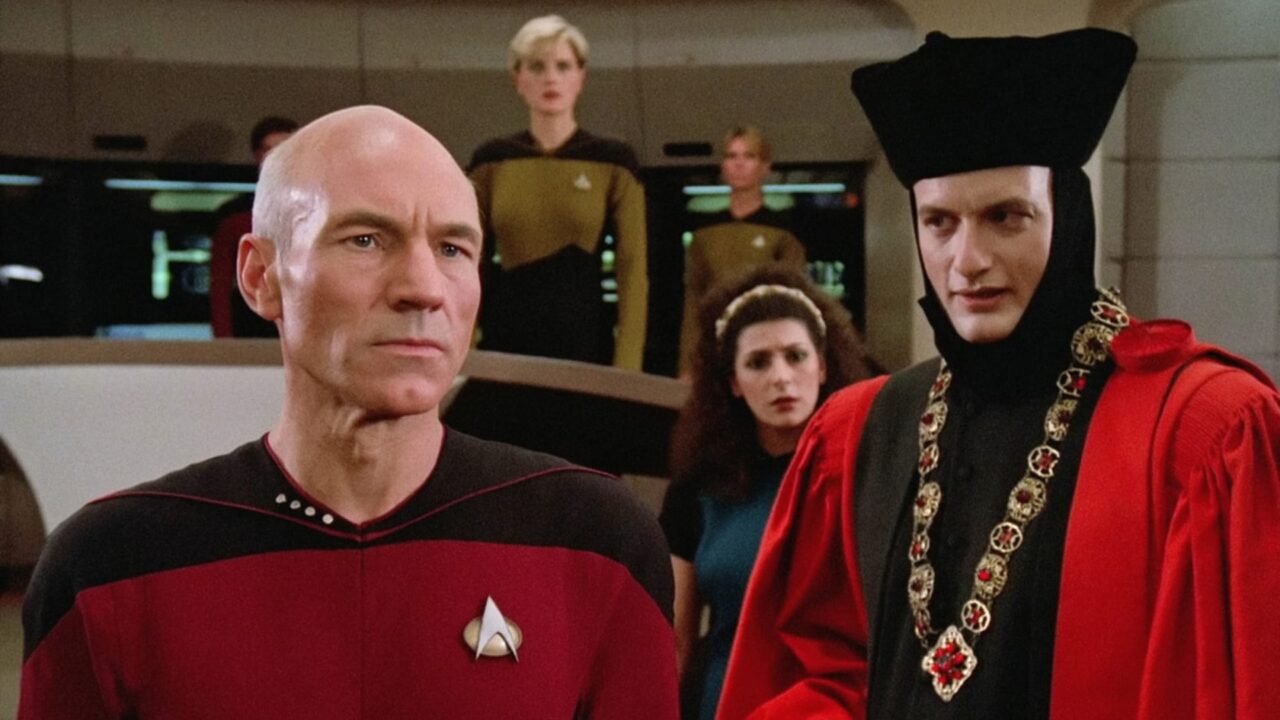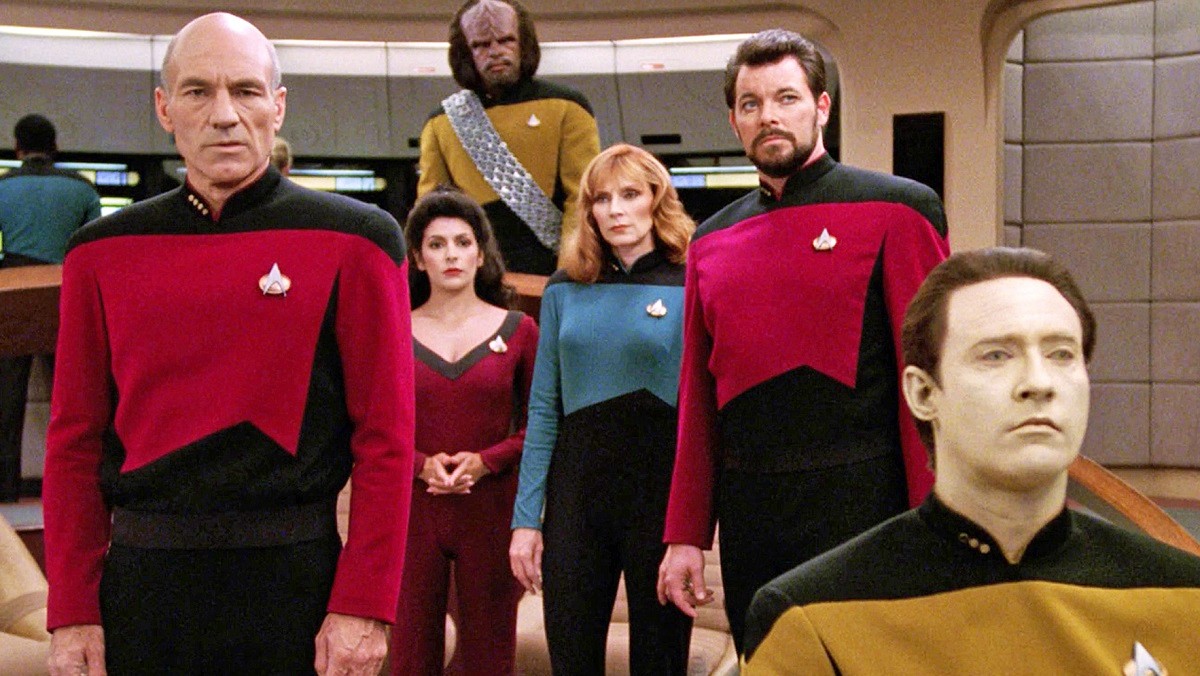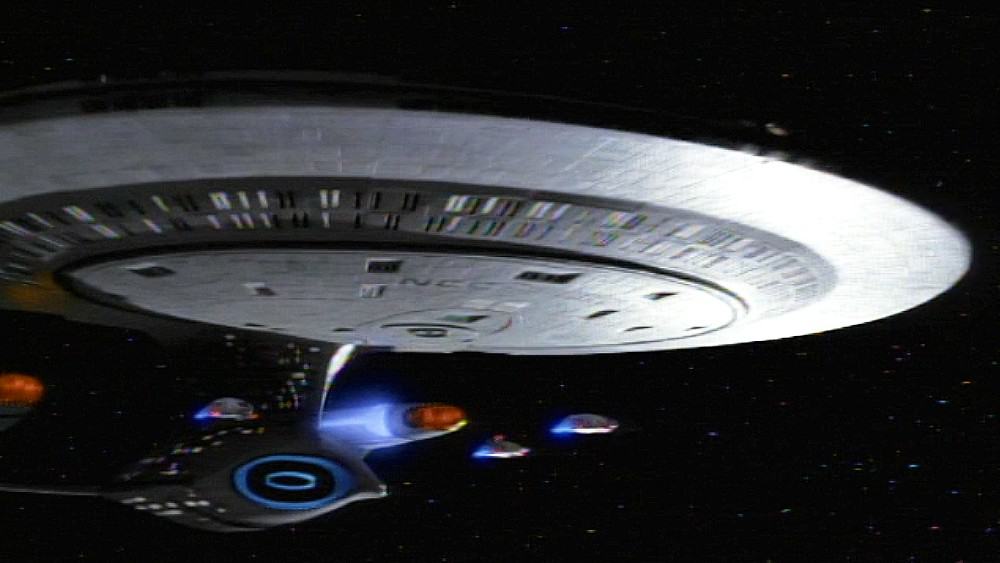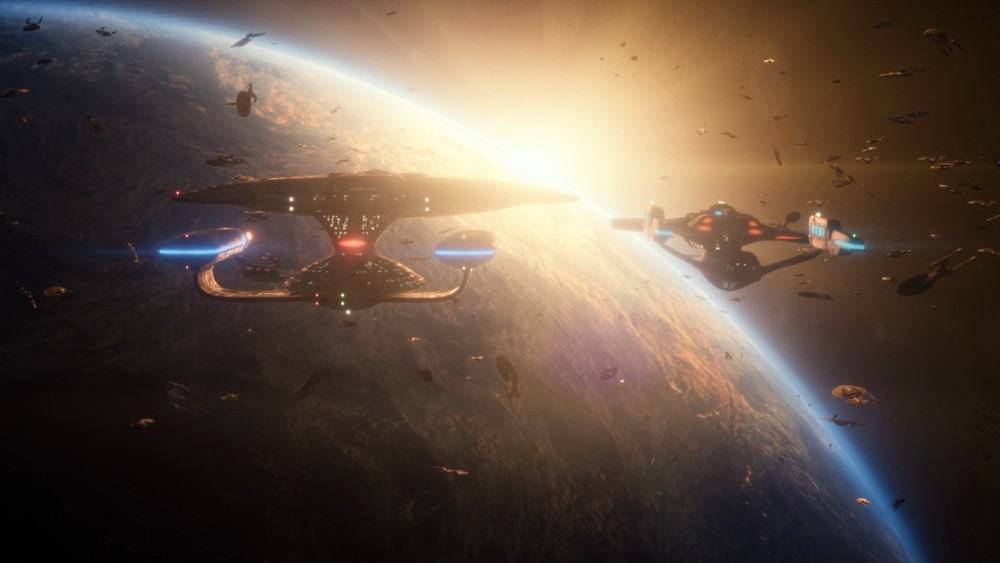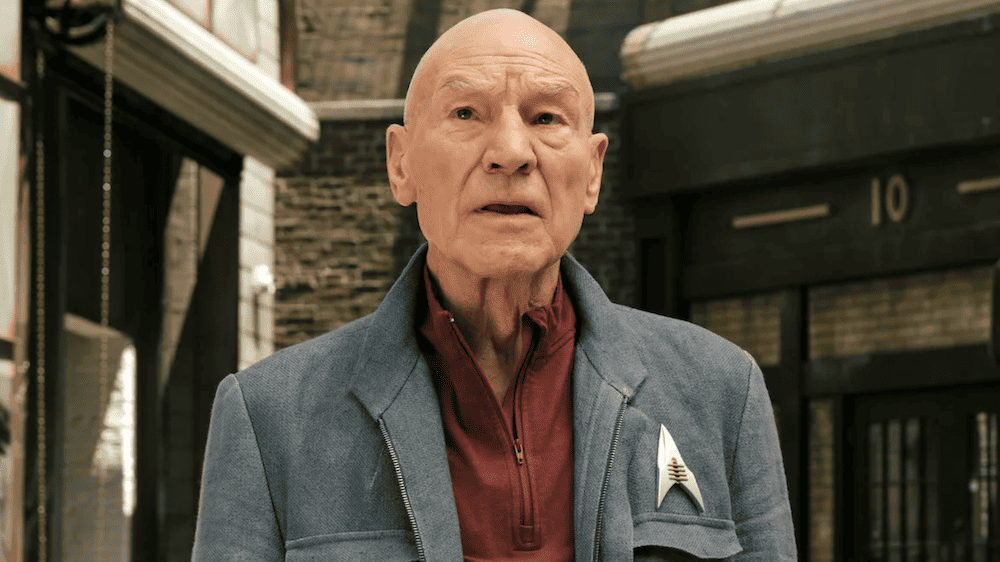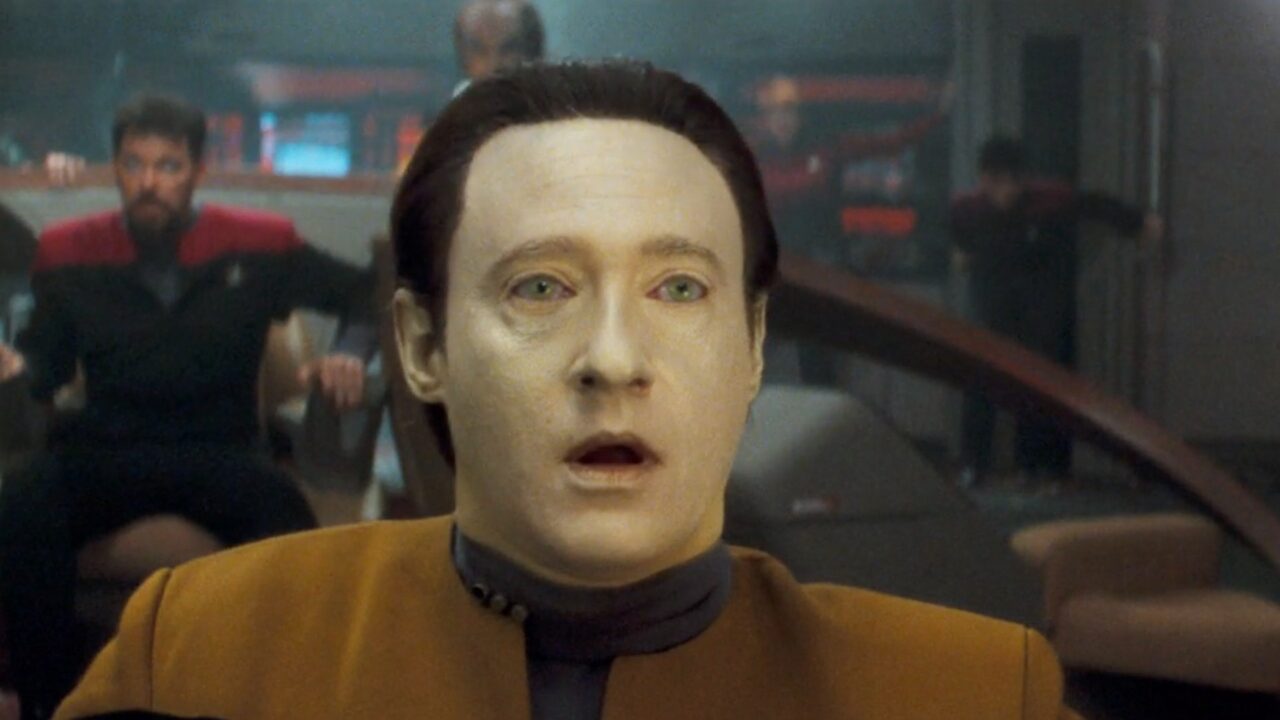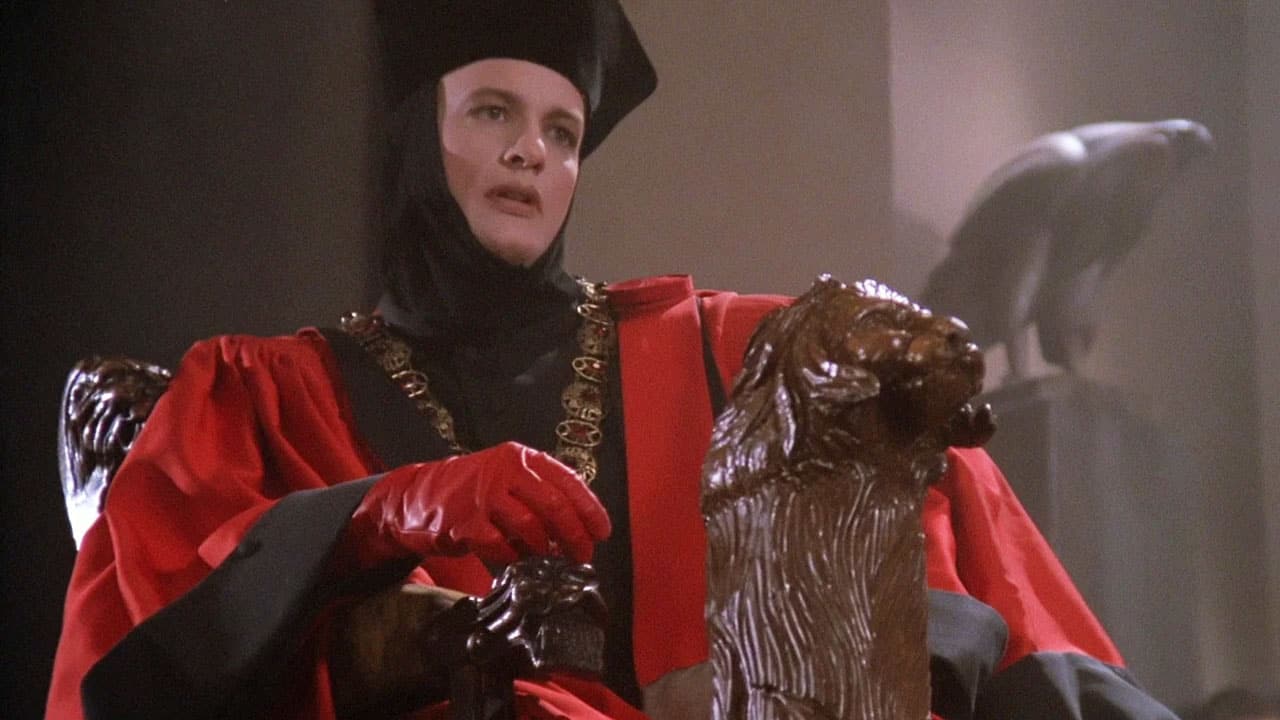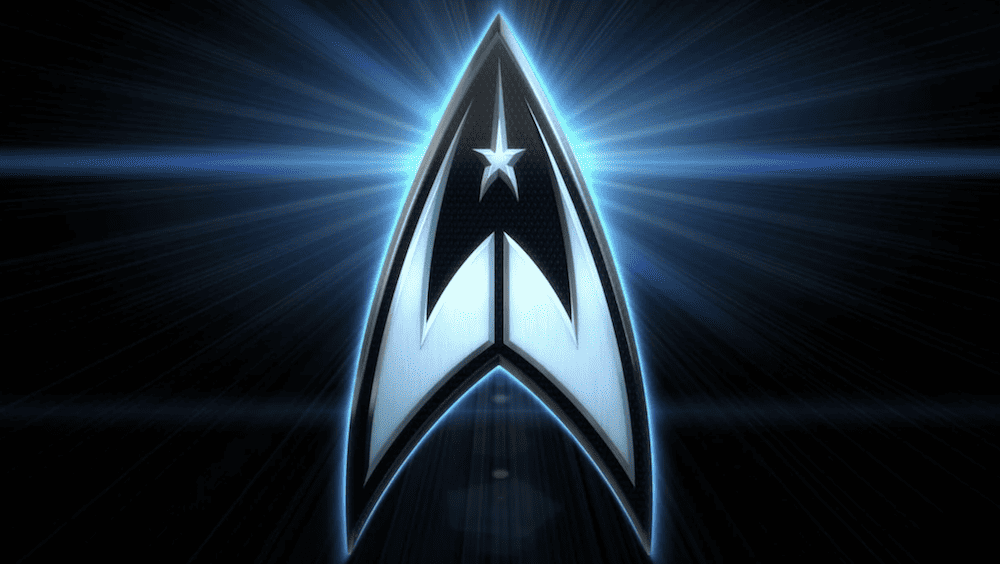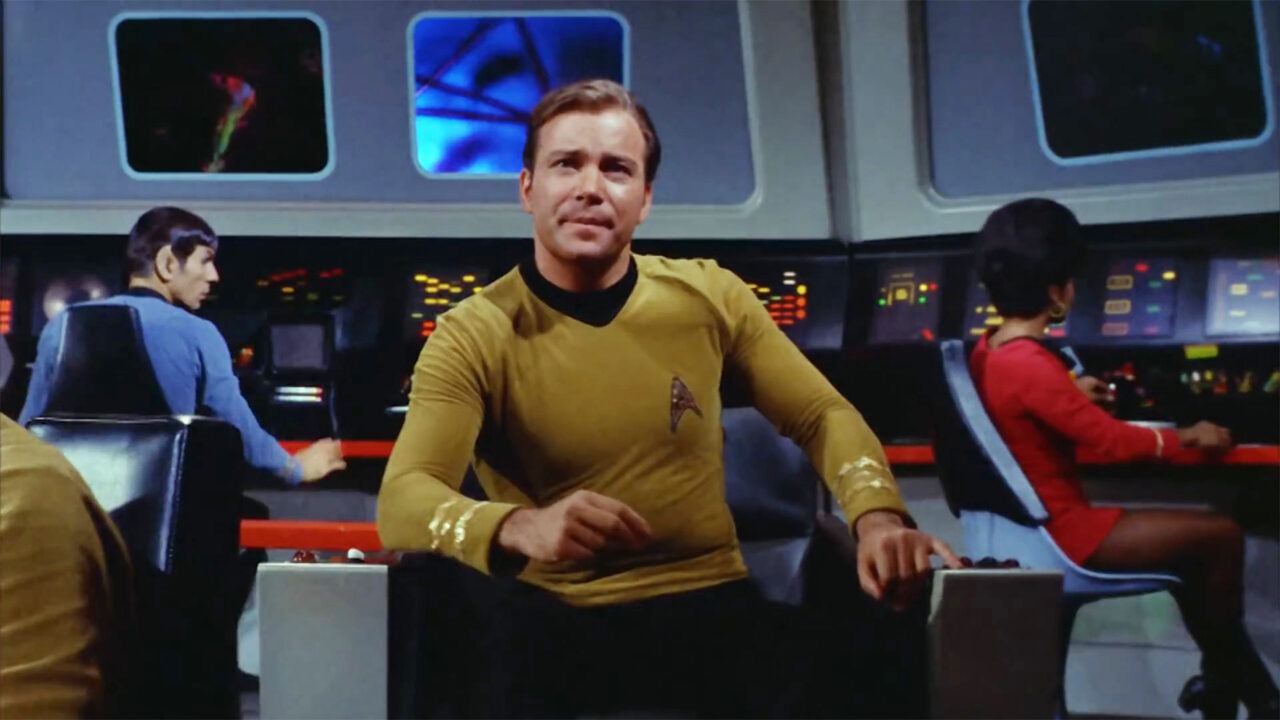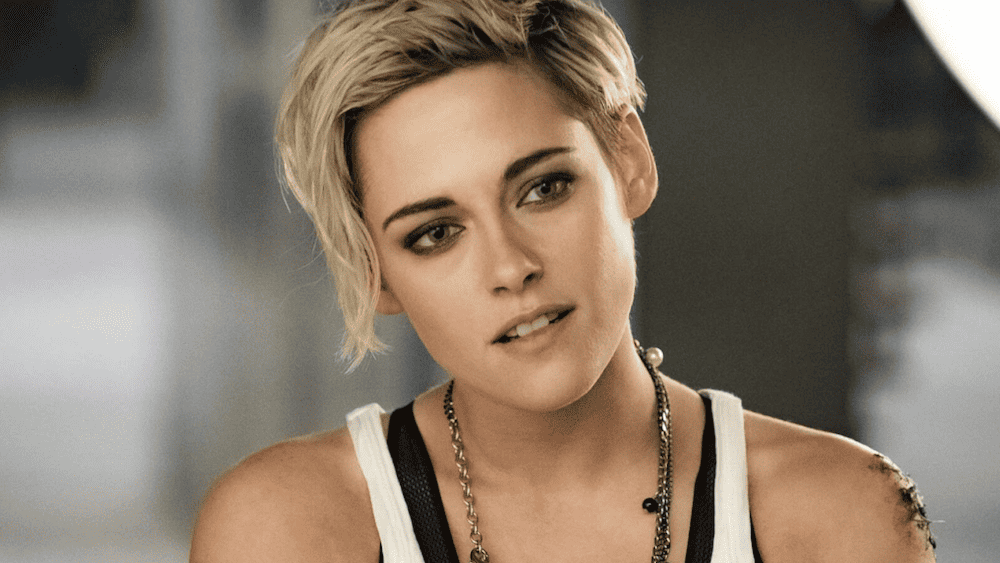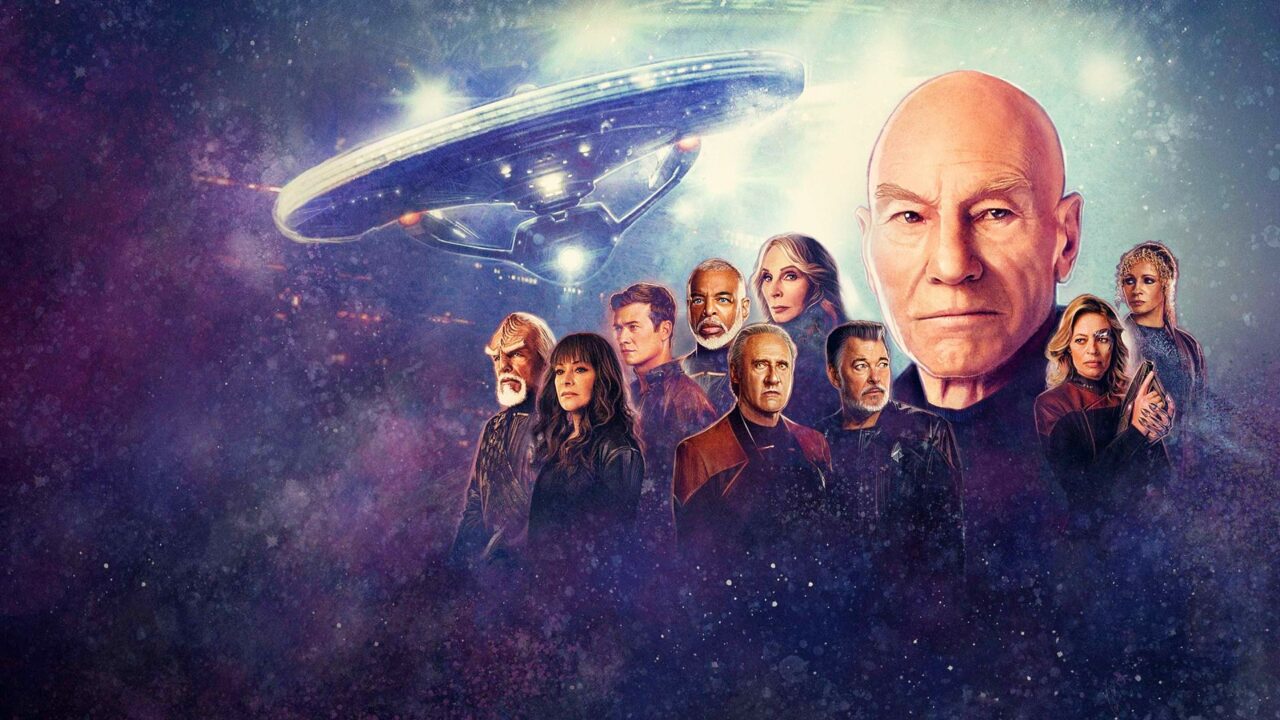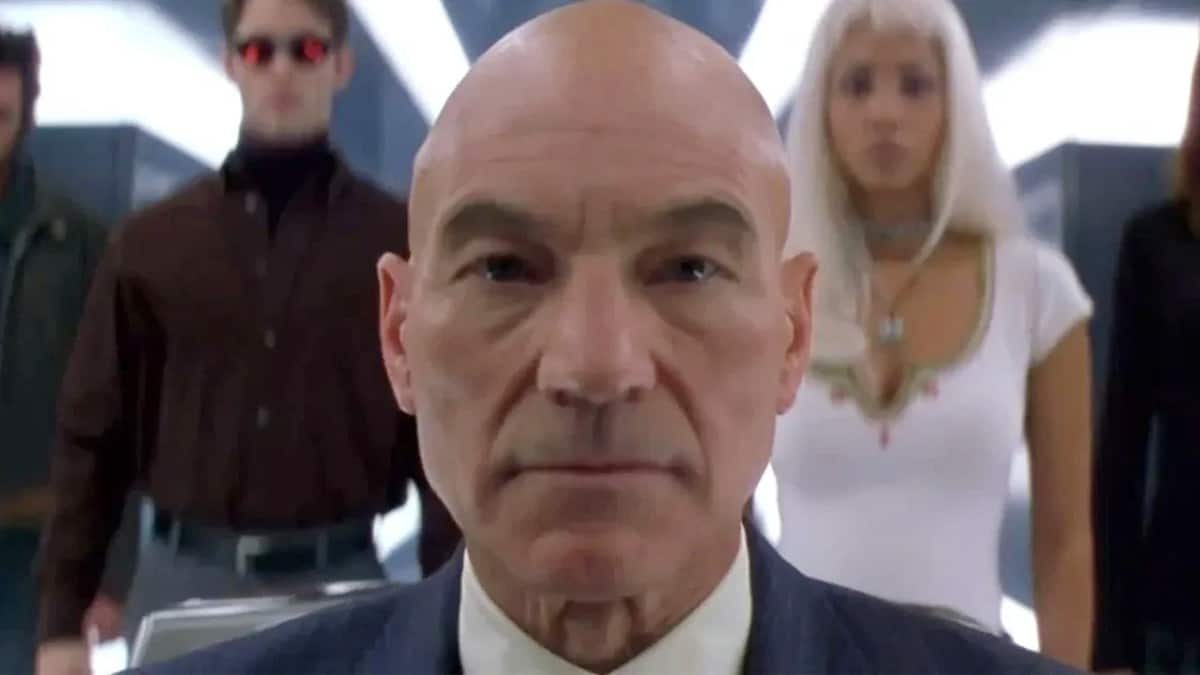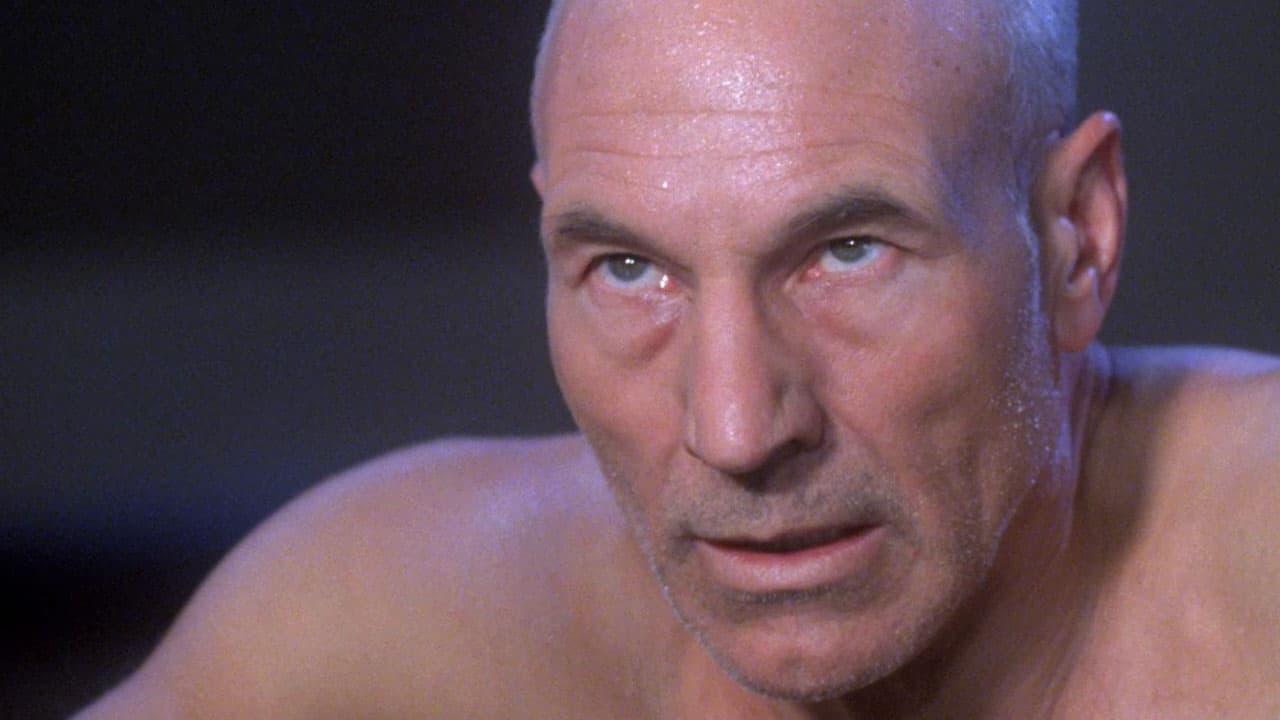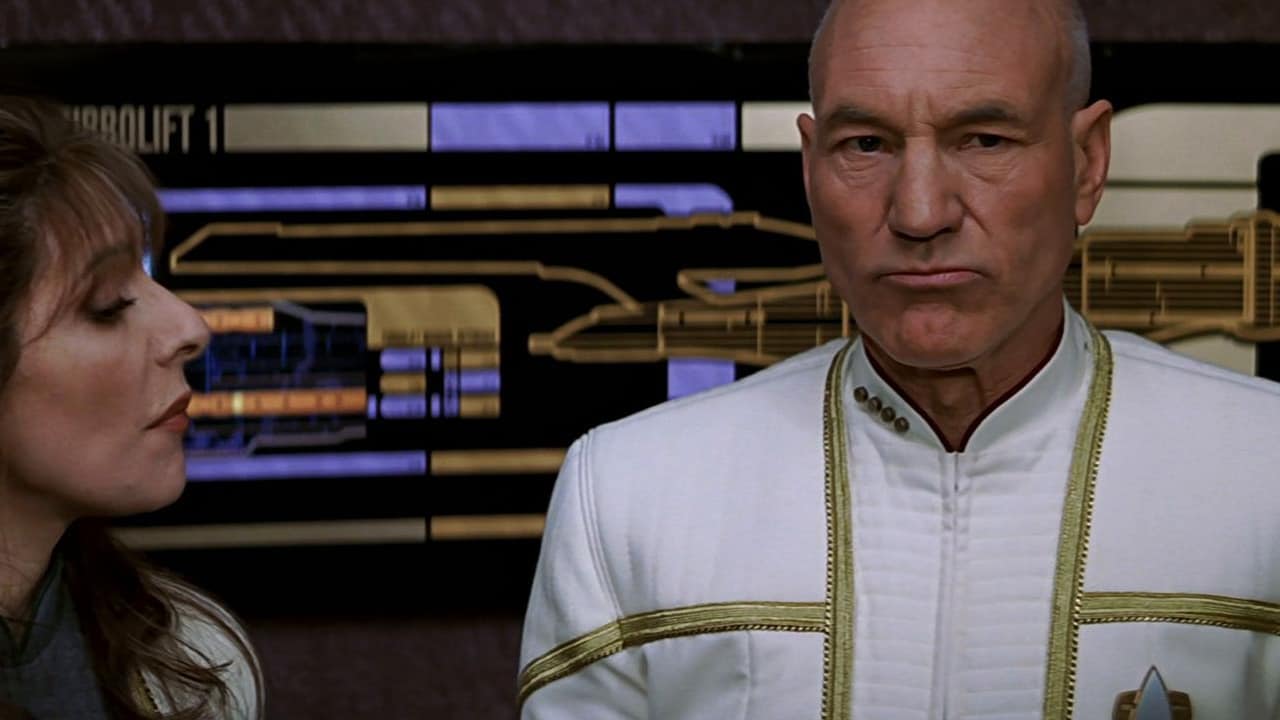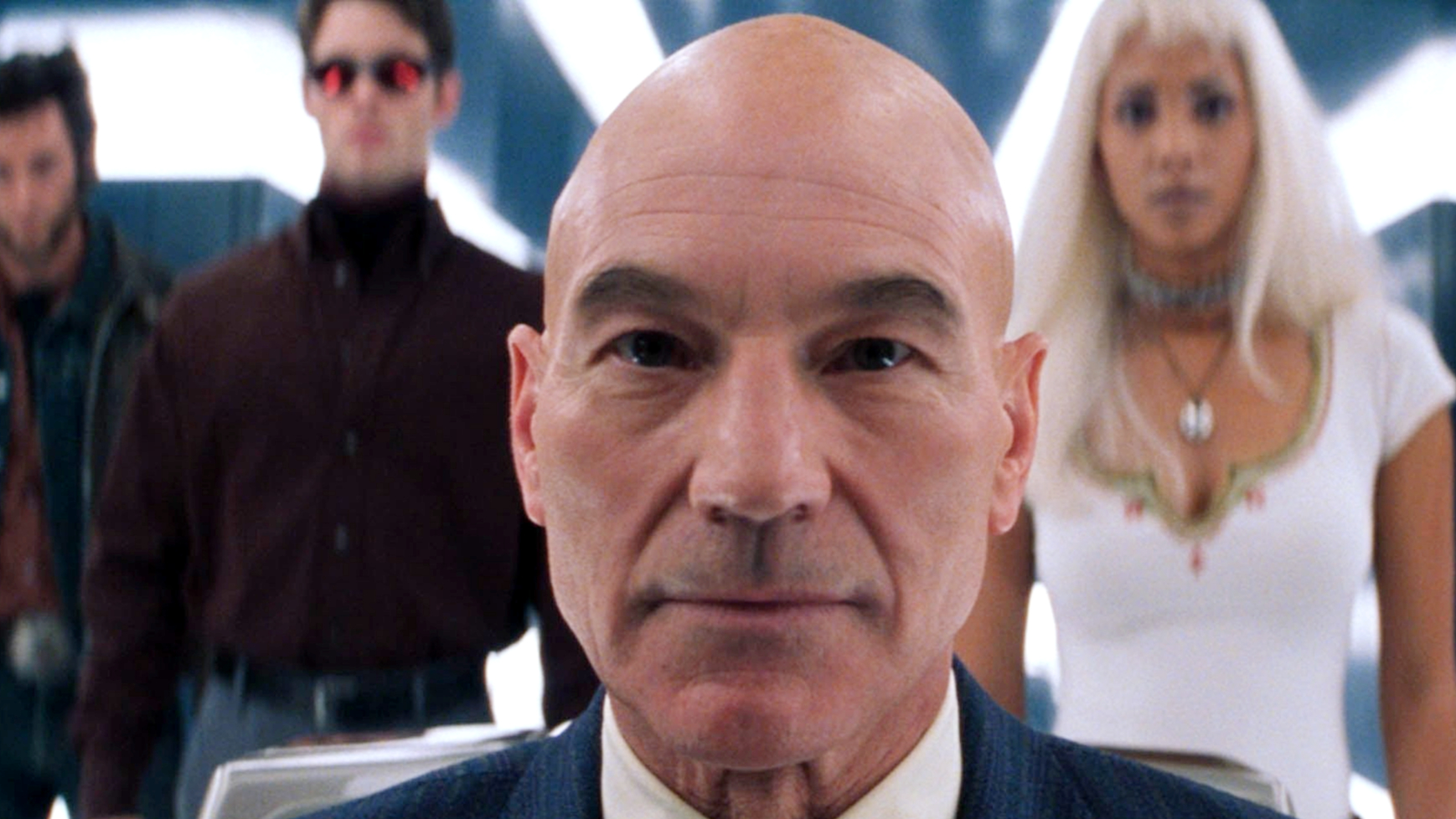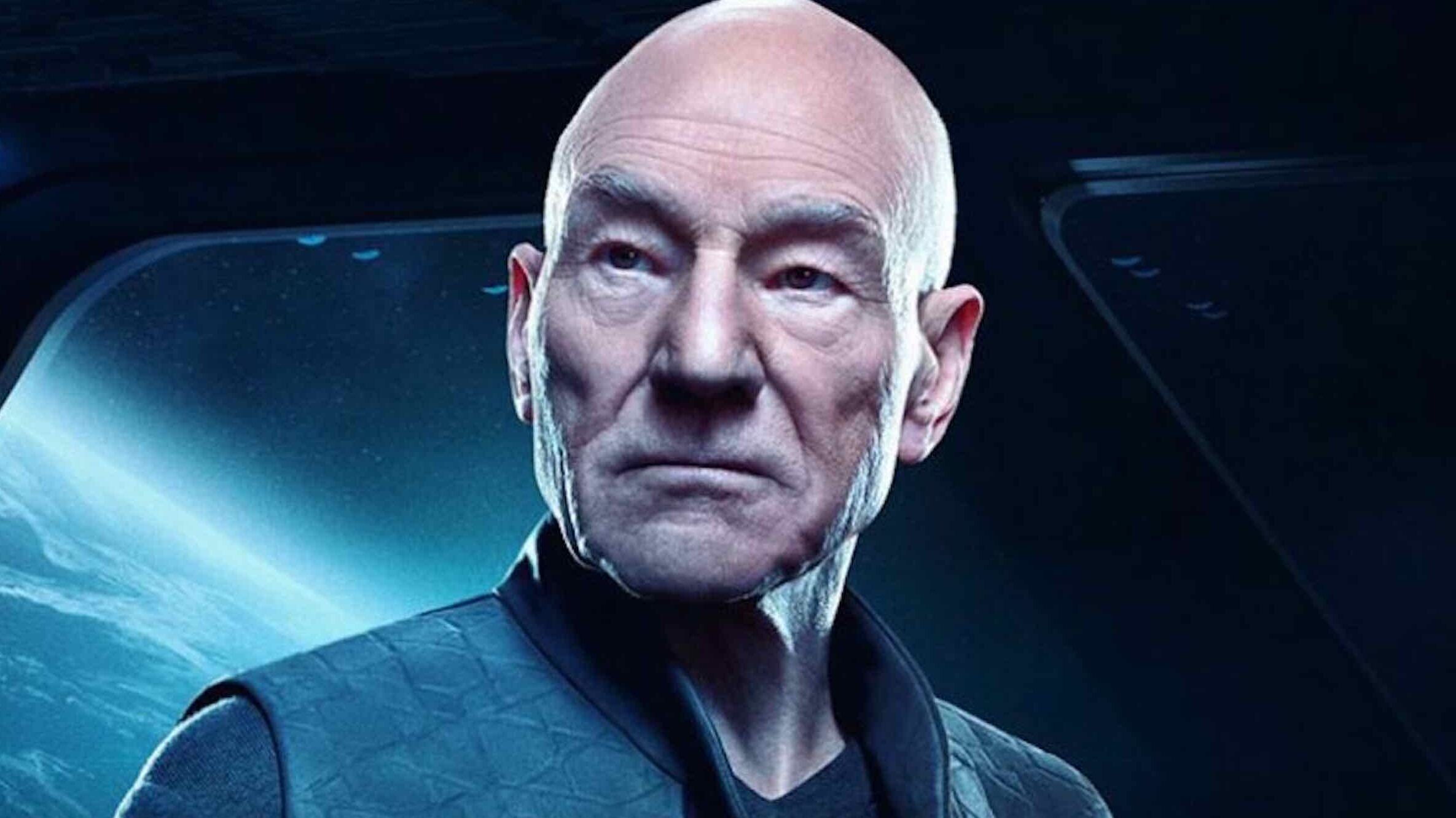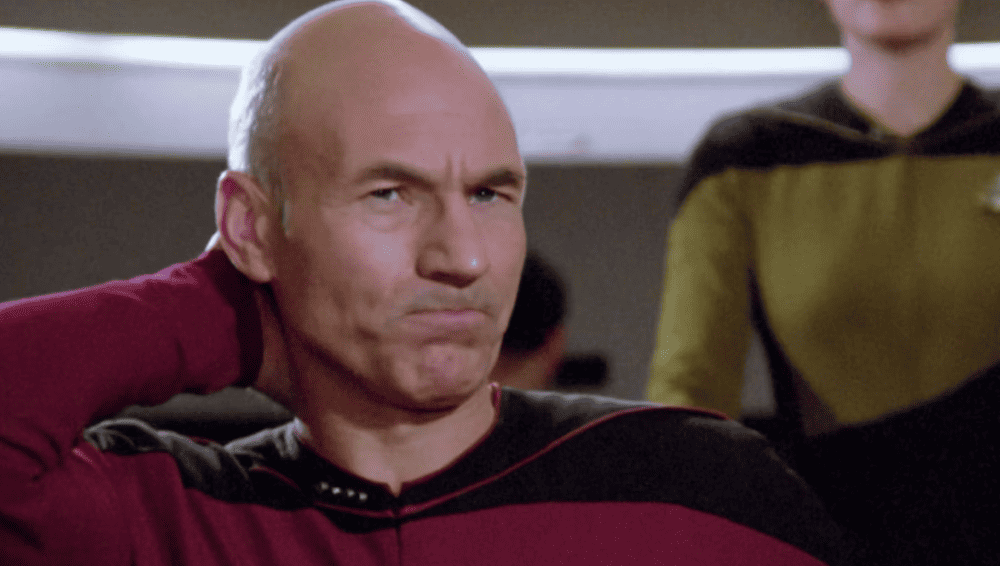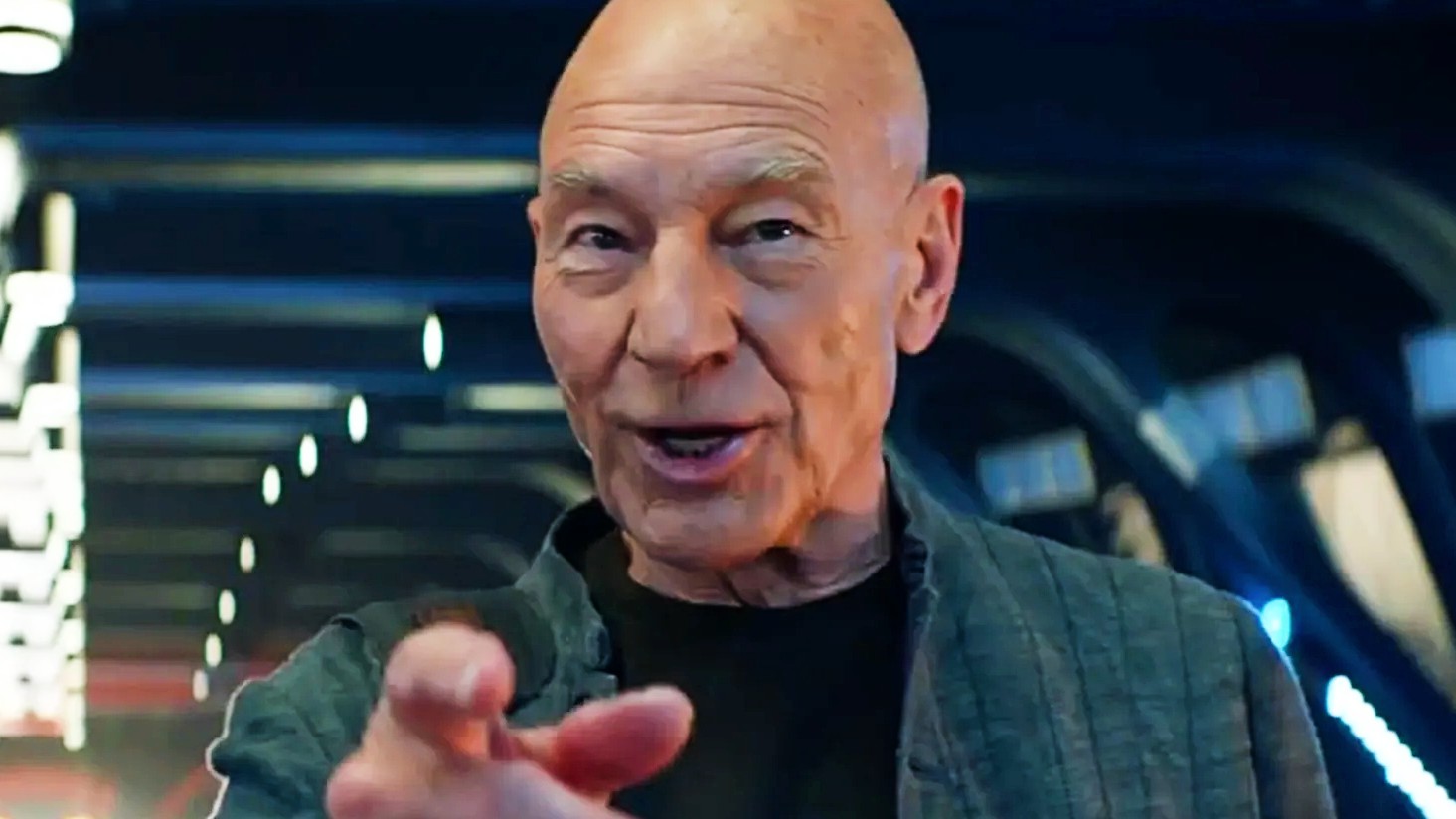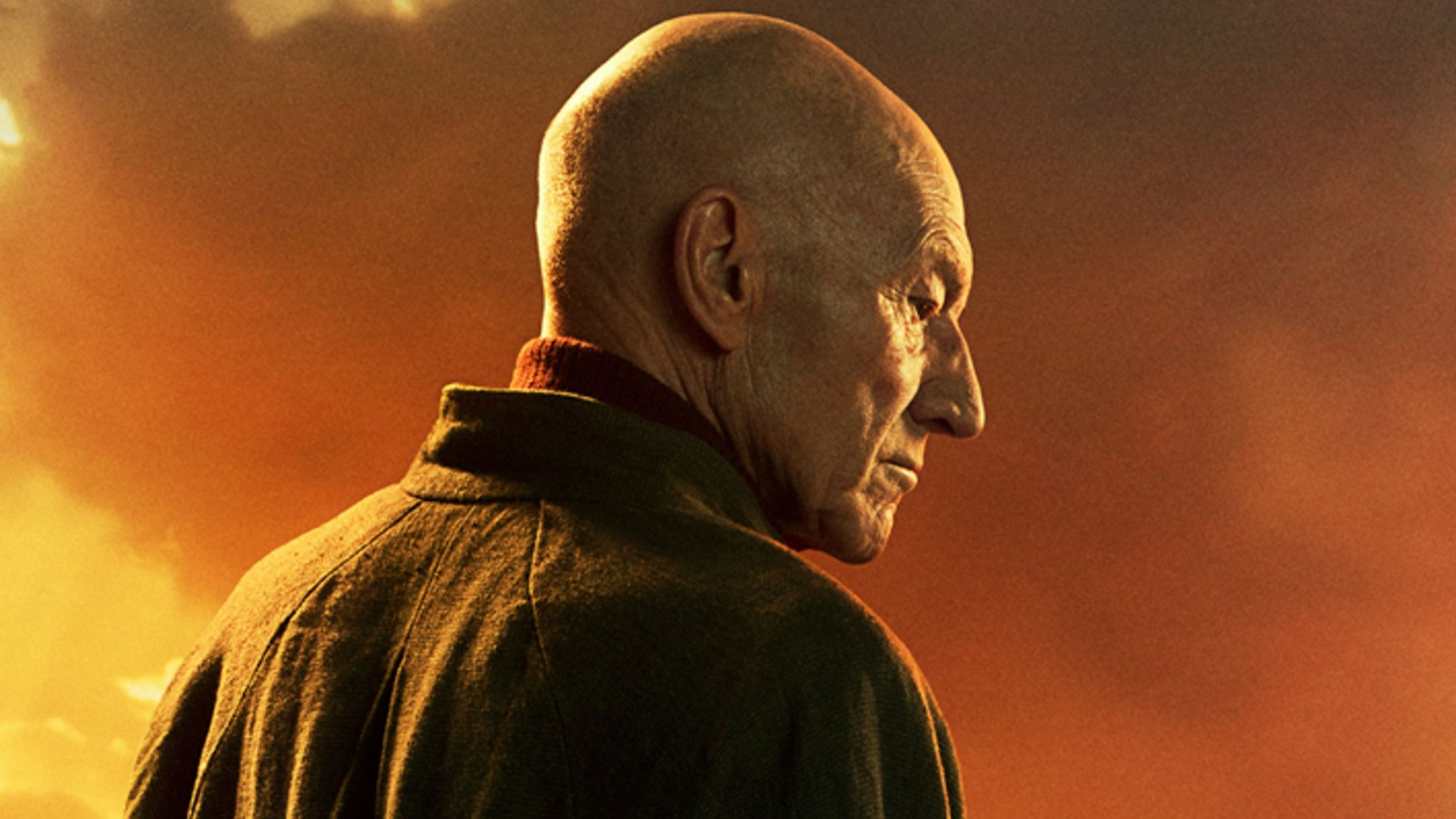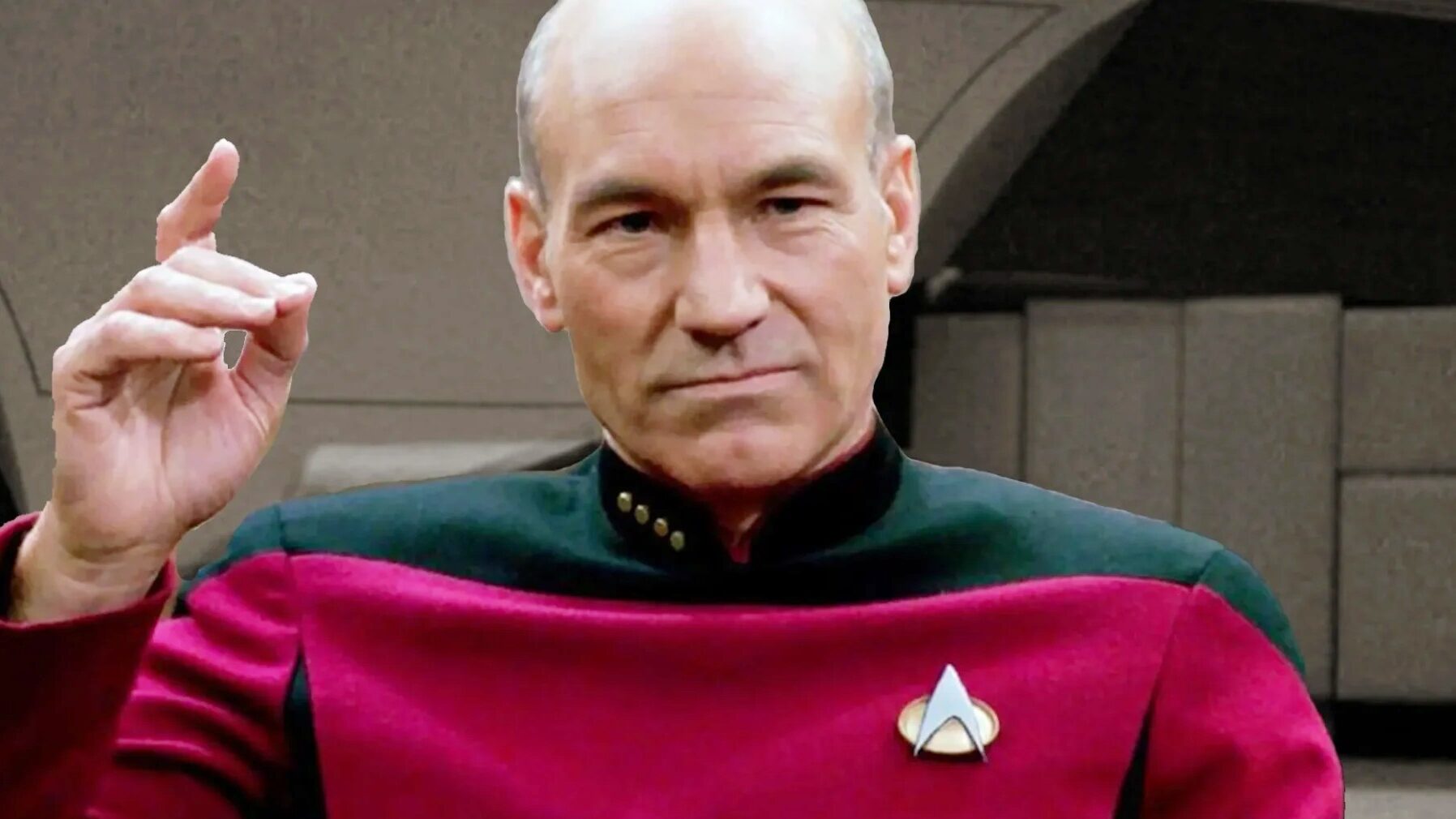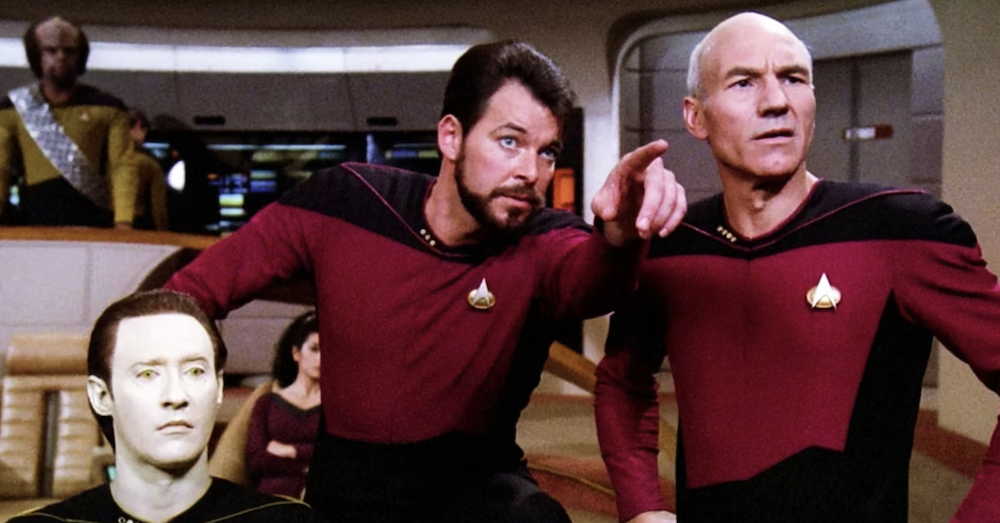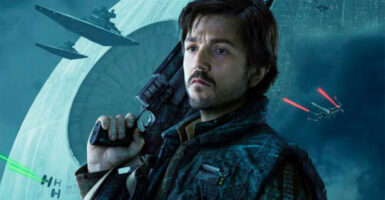Patrick Stewart
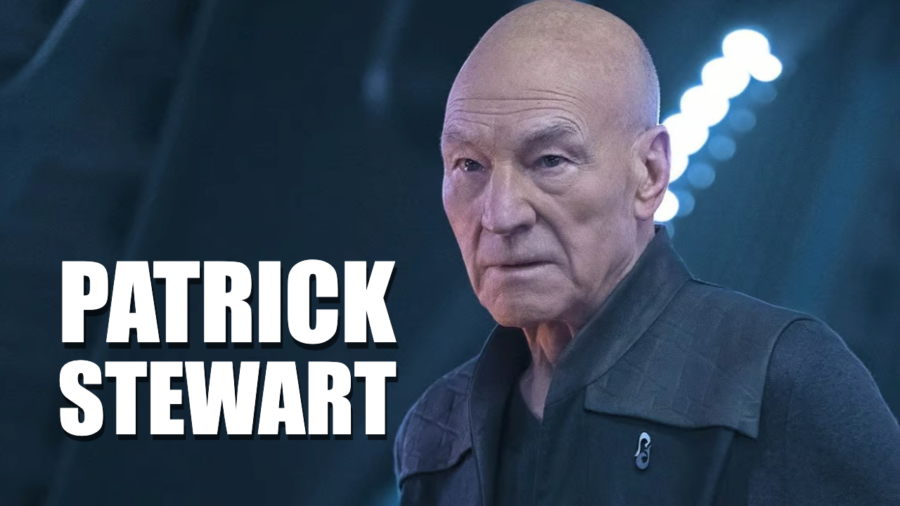
Sir Patrick Stewart is at once one of the most recognizable actors ever to grace the big or small screens. Not only that, but Stewart also possesses one of the most recognizable voices to come across the airwaves and is a record-setter for the Marvel Cinematic Universe.
Patrick Stewart is more than just an actor, for he is also a well-noted and respected thespian, a thrice-wed husband, a father, and someone who calls another “sir” his best friend. This is Patrick Stewart’s story.
PATRICK STEWART WAS BORN IN ENGLAND IN 1940
Patrick Stewart was born on July 13, 1940, in Mirfield, located in the West Riding of Yorkshire, England. He grew up in a household that was comprised of his father, Alfred, his mother, Gladys, and two older brothers, Geoffrey, who is seven years Patrick’s senior, and Trevor, who is five years the elder.
Although born in Mirfield, Patrick Stewart spent most of his childhood raised in Jarrow. The Stewarts were not a well-off family, in fact, they were quite poor. Making things much worse was the fact that Patrick suffered domestic violence at the hands of his father.
While it is impossible to excuse any violence towards children (so we won’t), it should be noted that Patrick Stewart’s father was a regimental sergeant major in the British Army during World War II and was part of the horror of the Dunkirk evacuation (over 338,000 soldiers evacuated resulting in over 68,000 soldier deaths). Because of this, Patrick’s father was diagnosed with what was called at the time, combat fatigue, better known today as post-traumatic stress disorder.
Throughout the years, Patrick Stewart never commented much about his father, but in a 2008 interview, he shed some light saying, “My father was a very potent individual, a very powerful man, who got what he wanted. It was said that when he strode onto the parade ground, birds stopped singing. It was many, many years before I realized how my father inserted himself into my work. I’ve grown a mustache for Macbeth. My father didn’t have one, but when I looked in the mirror just before I went on stage I saw my father’s face staring straight back at me.”
Patrick Stewart’s love for the stage started early on in his life. Stewart says it was his English teacher at the Crowlees Church of England Junior and Infants School who first got him interested when the teacher handed him a copy of Shakespeare and told him to “get up on your feet and perform.” Stewart did.
Stewart took his new-found love of acting with him to the Mirfield Secondary Modern School, where he continued his pursuit of drama. It was around this time, age 11, that Patrick Stewart met his oldest friend, Brian Blessed, at a drama course, and the two have been friends ever since that first meeting.
IT WAS EITHER JOURNALISM OR ACTING FOR PATRICK STEWART
By the time Patrick Stewart was 15 years old, he had left school to follow drama at his local theatre. To help pay the bills, he got a job as a writer for the Mirfield & District Reporter as a newspaper reporter and obituary writer. Stewart would hold this position for a year before his boss handed him an ultimatum – acting or journalism. Thankfully, he chose acting and left the job.
Apparently, and according to one of his brothers, Patrick would be going to play rehearsals during his work hours and when it came to writing stories for the newspaper, he would make them up. The choice to follow the acting path was a good one, as both he and Blessed eventually both got grants for the Bristol Old Vic Theatre School. This is where Stewart began to hone his craft.
PATRICK STEWART’S EARLY ACTING CAREER WAS A MIX OF STAGE AND SCREEN
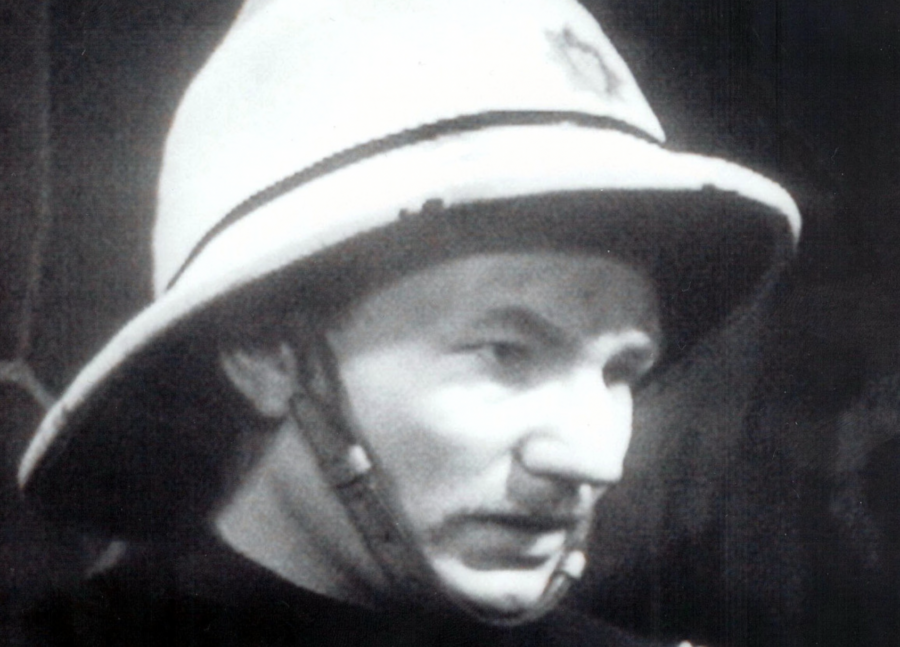
Patrick Stewart began his seven-decade acting career on the one place he feels very comfortable – the stage. His very first stage gig came in 1959 for the Bristol Old Vic Company in the play Cyrano de Bergerac. In it, Stewart played Cutpurse, whose goal in the play-within-a-play was to be a thief in the audience.
Patrick Stewart then moved on to Manchester’s Library Theatre for a short time before becoming a member of the Royal Shakespeare Company (RSC) in 1966. He stayed with the RSC until 1982. During this time of stage acting, Stewart also began to spread his wings to the film and television side of the business.
In 1964, Patrick Stewart made his very first British television appearance on an episode of Story Parade. It isn’t hard to tell, though, where he concentrated all of his acting efforts in the ‘60s, as he only had two more television appearances for the remainder of the ‘60s.
One was in 1966 on Theatre 625 and the other in 1967 on Coronation Street. In fact, it would be another three years before Patrick Stewart would show his face again on the tele.
Of course, during those three years, Patrick Stewart continued to cut his teeth on the stage. It took some time, but he eventually made his Broadway debut playing Snout in A Midsummer Night’s Dream. Although the stage was his haven, slowly but surely, Patrick Stewart was beginning to find some time on television.
It began in 1970 when he found time on the British series Omnibus. Then, it was more British television with series such as 2nd House and Fall of Eagles. Patrick Stewart then played Enobarbus in the TV movie Antony and Cleopatra. He also grabbed another TV movie in 1974 called The Gathering Storm.
By the time the mid-70s hit, Stewart was seen more and more on British television. He was seen on series such as Joby, Churchill’s People, the British version of North & South, I, Claudius, and Drama.
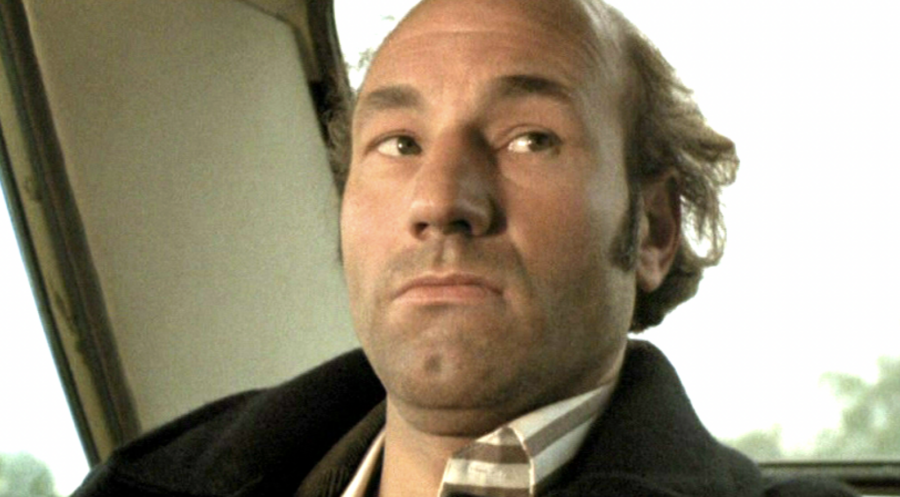
1975 was a big year for Patrick Stewart. It was the year in which he made his feature film debut in the movie Hennessy. The film starred Rod Steiger, Lee Remick, and Trevor Howard, with Stewart playing a small part as Tilney. Later that year, Stewart got his second feature film by playing Lovborg in Hedda.
As the ‘70s turned into the ‘80s, Patrick Stewart continued to work both stage and screen. He played Claudius in the TV movie Hamlet, Prince of Denmark and he also found small parts in popular ‘80s films such as John Boorman’s Excalibur, David Lynch’s Dune, and Tobe Hooper’s Lifeforce.
Still, Patrick Stewart preferred the stage over the big and small screens. He felt that nothing could beat a live performance. He also understood, though, that if he wanted to make it as an actor, he might have to come to a compromise with his career to make ends meet.
So, after over 20 years of living in relative obscurity on the big and small screen, Patrick Stewart was about to be thrust into a series with one of the most rabid fan bases ever seen. But was he truly ready to boldly go? One thing for certain, the gentleman who created the entire Star Trek universe was not on board with bringing Stewart on board.
BEFORE THE NEXT GENERATION, STAR TREK ALMOST HAD THE ACADEMY YEARS

By the time the very first episode of Star Trek: The Next Generation aired, there had been four feature films from the OG Star Trek series – Star Trek: The Motion Picture (1979), Star Trek II: The Wrath of Khan (19825), Star Trek III: The Search for Spock (1984), and Star Trek IV: The Voyage Home.
Wanting to capitalize on the once-again popular entity, Paramount Pictures felt it was time to bring a new Star Trek to the small screen.
They actually had considered doing this a year prior (back in 1972, with a movie) but when Star Wars hit the big screen in 1977, Paramount scrapped the idea of a film and instead began to focus on television.
They approached the original series cast, built sets, made models, and drawn sketches. It was going to be called Star Trek: Phase II, and things appeared to be moving forward for another series- that is, until Paramount changed its mind once again.
Back to the idea of feature films, Paramount moved forward with the original cast and saw Star Trek: The Motion Picture bring them all back – William Shatner, Leonard Nimoy, DeForest Kelley, James Doohan, George Takei, Walter Koenig, and Nichelle Nichols. Although the film wasn’t the big smash right out of the gate, it was popular enough to warrant a second film (The Wrath of Khan), one that pretty much set the table for the four films to follow.
Fun fact: Paramount also had plans, based on the success of its Star Trek movies, to introduce a “new generation” to Trekkies. “We thought of establishing new characters in a movie we called Star Trek: The Academy Years,” claimed one Paramount executive who wished to remain unnamed at the time.
But it was the salary demands of original series stars William Shatner and Leonard Nimoy for the fourth film (The Voyage Home, for which they were paid $2.5 million each) that squashed that idea.
With both Star Trek: Phase II and Star Trek: The Academy Years kicked to the curb, Paramount leaned into the Star Trek feature films. As Star Trek’s popularity began to rise from this, they once again decided that maybe, just maybe, the time was right to also bring the crew back to the small screen.
Paramount knew, though, that they could not afford the original cast, but since the seeds had already been planted with the “new generation,” they finally decided that a brand-new cast would be needed.
One of the early ideas floated was that while Paramount couldn’t afford to bring the entire cast back, especially Shatner and Nimoy, they could bring a few original cast members and have them be something like “elder statesmen” to help usher in the newbies.
Roddenberry even initially had in mind that the new series wouldn’t even have a USS Enterprise, as people in their future might be traveling by other means than a spaceship. Thankfully, that idea never came to fruition.
Then came the task of finding the new crew for the USS Enterprise. Roddenberry wanted to make it a point that the new crew dynamic would not take on the same similarities as the original series, meaning that sharp back-and-forth “crusty banter” between Kirk, Spock, and McCoy would be replaced by something more muted. The question that needed to be answered was – but by whom?
GENE RODDENBERRY WAS NOT A FAN OF PATRICK STEWART
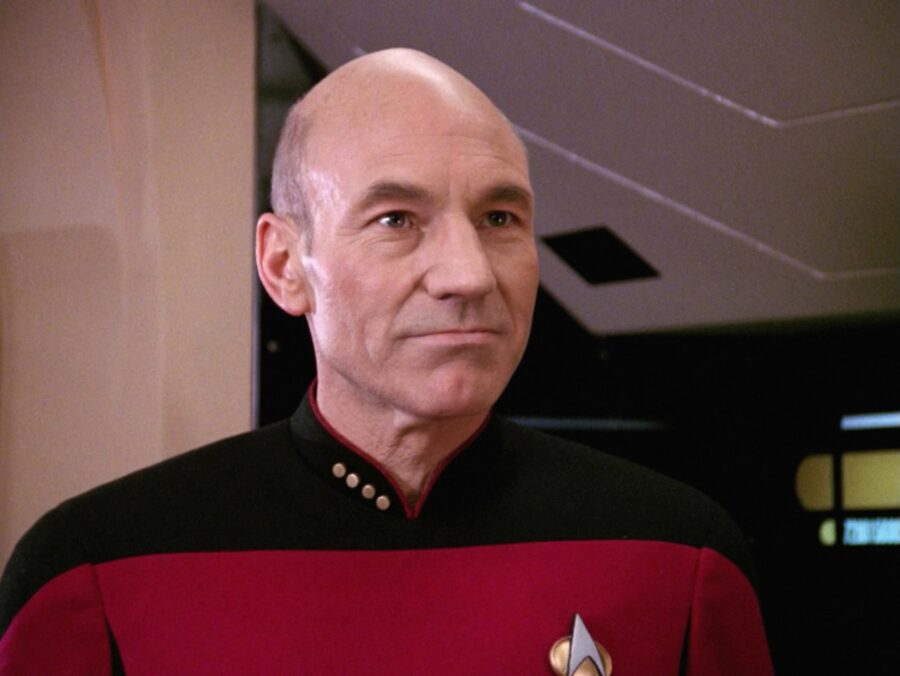
Maybe we should rephrase that. Gene Roddenberry was not a fan of Patrick Stewart becoming the captain of his newest Star Trek series, Star Trek: The Next Generation (TNG). Backing up just a tick, Star Trek creator Gene Roddenberry initially wasn’t going to be involved with the new series until he saw some of the early mockups and became very unhappy with them. So, he decided to go all in with the new series, and he became its creator.
Finding the cast for The Next Generation was not terribly difficult; finding the one who would sit in the captain’s chair, though, was a whole different story. When Patrick Stewart’s name was brought up, it was immediately a tough sell. No one in the United States really knew who Stewart was and the LA Times labeled him the “unknown British Shakespearean actor.”
It wasn’t that Roddenberry didn’t appreciate Patrick Stewart’s talents; he just didn’t see Stewart as a lead for the new series. Roddenberry was on board with Stewart, but he wanted Stewart to play Data. Roddenberry was looking for a lead who was “masculine, virile, and had a lot of hair,” and he had one actor, in particular, in mind.
THERE WERE MANY OTHER CHOICES FOR CAPTAIN JEAN-LUC
The top name on Roddenberry’s list to play Captain Jean-Luc Picard was Stephen Macht. At the time, Macht was known for the film Raid on Entebbe (1977) as well as the TV movie and eventual short-lived series, American Dream.
Macht also was in the hit series Knots Landing, and Strange Voices, and spent three seasons on Cagney & Lacey playing Cagney’s (Sharon Glees) love interest. Macht was also seen in the underrated horror comedy, The Monster Squad (1987).
Although Macht was Roddenberry’s first choice, there were others that Paramount looked at to sit in the captain’s chair. These included Yaphet Kotto, who was best known at the time for playing Dennis Parker in Ridley Scott’s 1979 science fiction horror hit, Alien; Roy Thinnes, who was best known for his role in the 1960s television series, The Invaders.
Other options were Mitchell Ryan, who was known for many films but maybe best known at the time for starring in the campy 1960s soap opera, Dark Shadows; and finally Patrick Bauchau, a Belgian actor who had just come off two mini-series (Christopher Columbus and Kane & Abel) and the James Bond film, A View to a Kill, where he starred as the villain, Scarpine.
According to producer Robert Justman, it took weeks of talks between him, Rick Berman, the series’ casting director, and Roddenberry to convince Roddenberry that Patrick Stewart was actually the man Roddenberry would love in the captain’s chair. Although Roddenberry finally acquiesced, Stewart never felt that Roddenberry, who passed away in 1991, ever truly accepted him as Picard.
Patrick Stewart was part of a 2020 virtual roundtable with actors Kieran Culkin, Daveed Diggs, Yahya Abdul-Mateen II, Tobias Menzies, and Bob Odenkirk and spoke about being cast as Picard and the process he went through to get there. One of the first things he spoke about was his audition for Picard.
“It was very odd with Gene,” Stewart started via Trekmovie.com, “because I was dragged in to audition for him in his living room the morning after I’d been seen doing something at UCLA. My meeting lasted about six minutes, and then it was perfectly clear I was not wanted in that room any time longer. It was Gene who said, ‘What the hell? I don’t want a bald, middle-aged Englishman.’”
Bauchau had recently completed his audition and since Macht had turned down Roddenberry’s offer to star as Picard, Bauchau jumped to the top of the list based on his audition.
But Justman and Berman continued to push for Patrick Stewart to which Stewart said during the roundtable, “There is somewhere in the cellars of Paramount Pictures, a Post-it note which says, ‘I do not want to hear Patrick Stewart’s name mentioned again, ever! signed Gene Roddenberry.’”
Somehow, some way, Justman and Berman were able to get Roddenberry to see the light and when Patrick Stewart was brought in to meet the Paramount executives, they immediately loved him.
PATRICK STEWART TRIED WEARING A TOUPEE BECAUSE RODDENBERRY HATED THAT HE WAS BALD
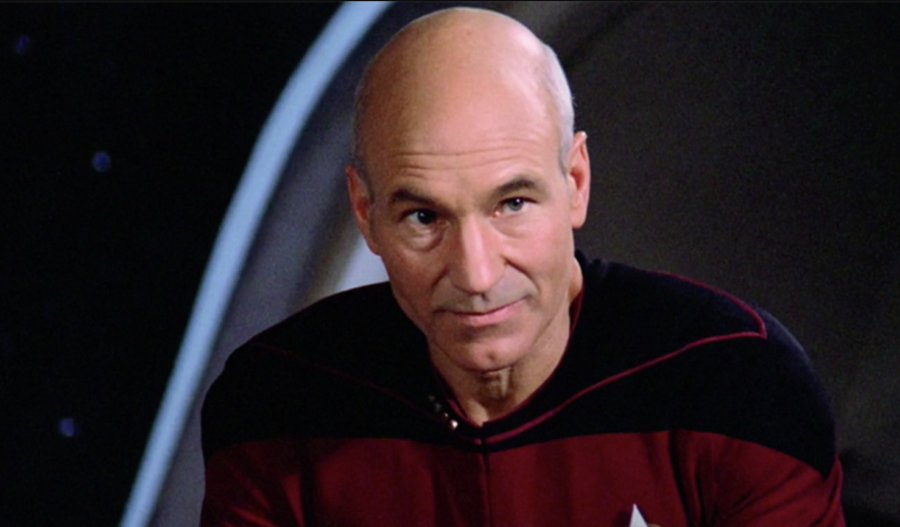
For Stewart, though, he couldn’t understand why they would cast a “middle-aged bald English Shakespearean actor,” and he took the bald thing to heart. Before he met with the Paramount executives, Stewart had a toupee delivered to him. He was wearing the thing before the meeting but Roddenberry, in his own “respectful” way, told Stewart to take off that “awful looking” toupee.
Before health reasons took over Roddenberry’s life, he would visit the TNG set a couple of times throughout the week. Patrick Stewart didn’t ever get the warm fuzzies any time Roddenberry would appear. He told the roundtable group:
“Gene used to come on the set once a week, maybe twice… it depends on who the cast were. And I would catch him looking at me with an expression on his face which said, ‘What the fuck is this guy doing in my show?’ It was clear he couldn’t understand why I was there.”
Patrick Stewart then told the group that Roddenberry’s opinion of him made him feel “a little uncomfortable,” and then he went on to describe the one and only lunch meeting he ever had with Gene Roddenberry.
“I had lunch with him only once, just the two of us and I said, ‘So Gene, to help me: Where did the idea for the character spring from? Can you give me any connections that I could use and build on for this?’ And he said, ‘Oh yeah I’ve got it here with me,’ and he pulled out a beaten-up paperback copy of one of the Horatio Hornblower books, and said, ‘It’s all there.’ So the character, it turns out, was based on Horatio Hornblower, but as I was in a spaceship and not an ocean-going ship, I felt that I never really satisfied Gene the way he wanted to be satisfied.”
PATRICK STEWART WAS JEAN-LUC PICARD ON STAR TREK: THE NEXT GENERATION
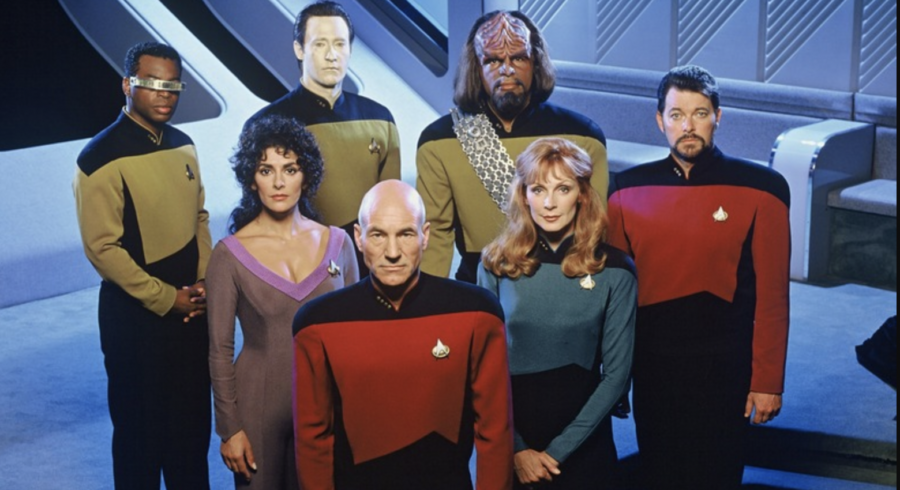
Patrick Stewart officially took over as Captain Jean-Luc Picard in 1987. He was joined on the Star Trek: The Next Generation set by Jonathan Frakes as Commander William Riker, LeVar Burton as Lieutenant Geordi La Forge, Denise Crosby as Lieutenant Tasha Yar, Michael Dorn as Lieutenant Worf, Gates McFadden as Dr. Beverly Crusher, Marina Sirtis as Lieutenant Commander Deanna Troi, Brent Spiner as Lieutenant Commander Data, and Wil Wheaton as Wesley, Dr. Crusher’s son.
Behind the scenes, things were not looking good for a possible second season. It had nothing to do with Patrick Stewart and the rest of the cast, but instead with Roddenberry and the writers of the show.
Although the writers were enjoying the freedom given to them being independent of a specific network’s Standards and Practices department, they had to deal with Roddenberry and his series “bible.” Because of this, the first season was marked by numerous writers leaving the show.
The disputes with Roddenberry over his TNG “vision” caused many to quit, with Roddenberry pretty much rewriting the series’ first 15 episodes because he was hell-bent on showing human interaction “without drawing on the baser motives of greed, lust, and power.” The writers who left the series found Roddenberry’s series bible too constricting and ultimately his ego too great for them to deal with.
David Gerrold was a writer on the first season and was also one who left the series during the first season, claims that Roddenberry even brought his lawyer in. This lawyer took apart six months of the writers’ work to include removing a gay couple that Roddenberry had promised the writers they could include. This omission is what finally caused Gerrold to leave the series.
Not all of Roddenberry’s choices fell on deaf ears. Patrick Stewart’s Picard was introduced to one of the most notable nemeses in the Star Trek universe when Q, played magnificently by John de Lancie, came on board in the pilot episode. The cast loved the first season episode titled, The Naked Now, which introduced the past relationship between Deanna Troi and William Riker and took a look at sex in the future.
Whether Roddenberry was right or wrong, the end results told the story. Patrick Stewart was a hit as Captain Picard and the first season gained considerable attention.
The pilot episode became the first to be nominated for a Hugo Award since 1972. Six of season one’s episodes were nominated for Emmy Awards with one episode winning for Outstanding Sound Editing in a Series, another winning for Outstanding Costume Design for a Series, and finally, one more episode taking home the prize for Outstanding Achievement in Makeup in a Series.
THE NEXT GENERATION FACED ISSUES GOING INTO SEASON 2
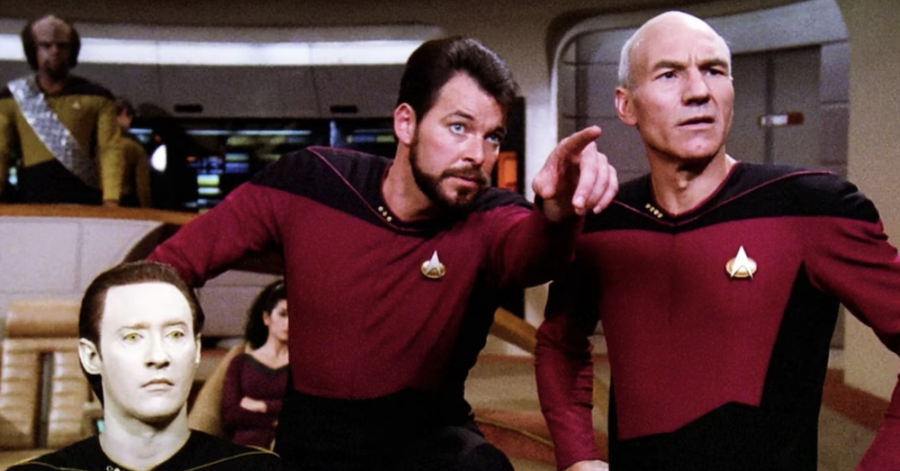
With all the accolades heaped upon TNG’s first season, one would think if it ain’t broke, don’t try and fix it. Well, try to fix it they did. Patrick Stewart and the rest of the TNG crew saw a number of changes fall upon them as Season 2 began to unfold. The main reason for this was the 1988 Writers Guild of America strike.
First off, the strike forced producers of TNG to cut down the episode count from the usual (at the time) 26 per season to 22. The second season premiere was delayed because of the strike and the second season premiere episode (The Child) was actually a script that was originally written for the kicked-to-the-curb series, Star Trek: Phase II. You may also recall that the Season 2 finale was nothing more than a clip show.
But through all of this, Patrick Stewart was finding his range and voice as Captain Picard, although it took him some time to reel it all in. When he first took the job, Stewart was living out of his suitcase because he never thought the series would take off. He also found difficulty with the long shooting schedule for a television series.
Because of his upbringing on the stage, Patrick Stewart found issues with his castmates who, according to Stewart, were less disciplined than he was used to. He also had a lot of trouble, in the beginning, trying to learn and memorize the technical words he was expected to use as Captain Picard. Stewart claims that throughout his entire time on the series, his favorite technical line became the “space-time continuum.”
It was the professionalism that Patrick Stewart brought to the set that eventually rubbed off on his castmates. Marina Sirtis said that “at least 50%, if not more” of TNG’s success is attributed to Stewart and how he tackled his role on the daily. He was always prepared, on time, and ready to go and the other castmates truly appreciated it.
Jonathan Frakes, who not only starred in the series, but directed a number of the episodes as well as films throughout the Star Trek franchise, says about Patrick Stewart, “Some shows I’ve been on, actors show up who haven’t even read the script”, and that Stewart “set such a high bar for preparation. We all came to work in the morning completely prepared. We knew our lines and had broken down the script.”
STAR TREK MADE PATRICK STEWART VERY WEALTHY
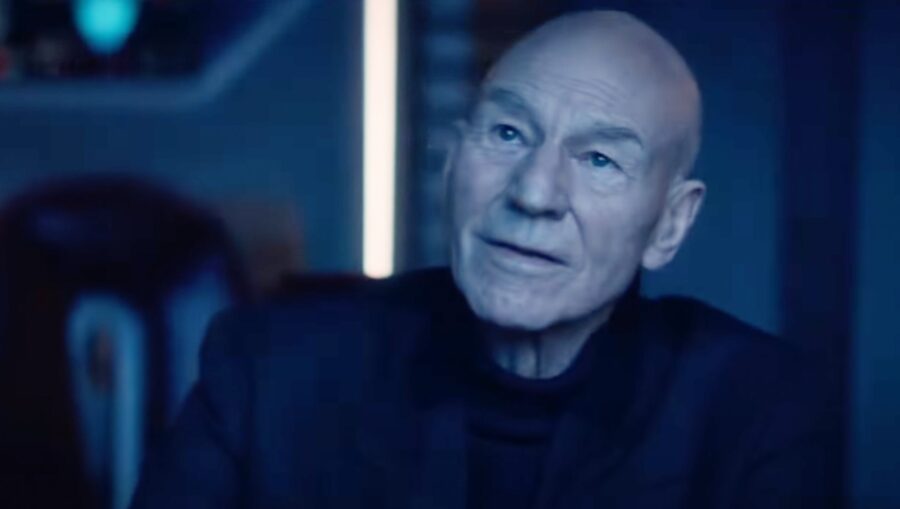
The one thing that was slowly becoming very apparent with the success of Star Trek: The Next Generation, was Patrick Stewart’s growing bank account. He was beginning to see the kind of money that he never experienced while working on the stage.
Stewart was filming TNG in 1992 and during a break in shooting, he came to the realization that he had just earned more money during the break than he did in his entire 10-week London run of the play Woolf.
What Patrick Stewart was also finding out, though, was that this newfound fortune opened up more opportunities to perform in various stage plays and not have to worry about making ends meet.
Stewart started off making $45,000 per episode, which was not a bad way to start, seeing as how Roddenberry was very much against Stewart taking on the role. By the end of the series, which lasted seven seasons through May 1994, Patrick Stewart was making $100,000 per episode.
These numbers increased dramatically when Star Trek: The Next Generation began making feature films. For instance, for the second TNG feature film, Star Trek: First Contact, Patrick Stewart pulled in $5 million for that performance.
For his final film, Star Trek: Nemesis, Stewart was rewarded with a $14 million payday.
HE AND WILLIAM SHATNER ACTUALLY GOT ALONG WHEN THEY FILMED GENERATIONS
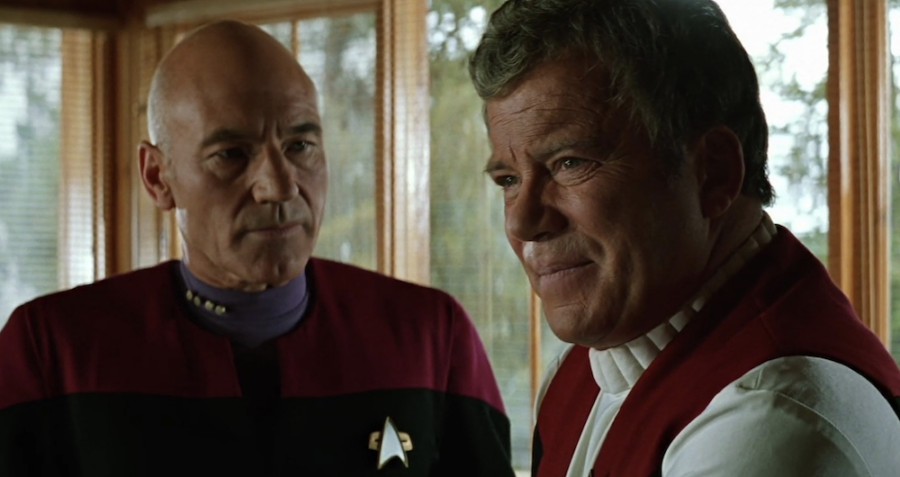
The very first TNG feature film right out of the gate was the 1994 film Star Trek Generations. The film came two years after the final episode of TNG and was meant to be a passing of the torch, so to speak, from the original series cast to the cast of TNG.
Paramount had wanted the entire original cast to appear in the film, but both Leonard Nimoy and DeForest Kelley both balked at the idea, with Nimoy stating he felt there were issues with the script.
Nimoy and Kelley eventually chose to skip the film, feeling their goodbyes in the final Star Trek film, 1991 Star Trek VI: The Undiscovered Country, were enough for their characters.
So, instead of having the entire original series cast return, Generations got James Doohan to return as Scott, Walter Koenig to come back as Chekov, and yes, William Shatner returned as Captain Kirk. This meant the highly anticipated meeting between Shatner’s Kirk and Patrick Stewart’s Jean-Luc Picard. They got exactly that.
Unfortunately, the script didn’t allow for Kirk and Picard to get much screen time together, as Kirk’s apparent death took him out of much of the story. Another issue with the script was Kirk’s true death. Test audiences did not care for Kirk being shot in the back by the villain Soran (played by Malcolm McDowell), so instead of keeping it, it was decided to reshoot Kirk’s death scene to make him experience a more heroic ending.
There were rumors that Patrick Stewart did not get along with William Shatner on the set of Star Trek Generations, and that wouldn’t be a surprise, seeing as how Shatner’s ego was a notoriously difficult thing to deal with (well, at least according to Shatner’s former co-star on the original series, George Takei). Those rumors, though, were simply that and apparently, Stewart and Shatner got along famously.
Things were so good between the two that Shatner even offered Patrick Stewart some friendly and helpful advice as they prepared for a horseback riding scene. “He’s a love and he is an intellectual in an athlete’s body,” is how William Shatner described Patrick Stewart.
“We had a long horse scene to do together once, and I recommended him wearing women’s silk stockings to avoid chafing and he nodded his head as a thank you. When he came out of his dressing room, he was wearing the lace stockings outside of his costume. ‘No, no, Patrick, underneath your costume!’ We laughed, as we ordinarily did. I didn’t know he was so old.” He’s actually younger than you, William.
STAR TREK: THE NEXT GENERATION ENDED IN 1994
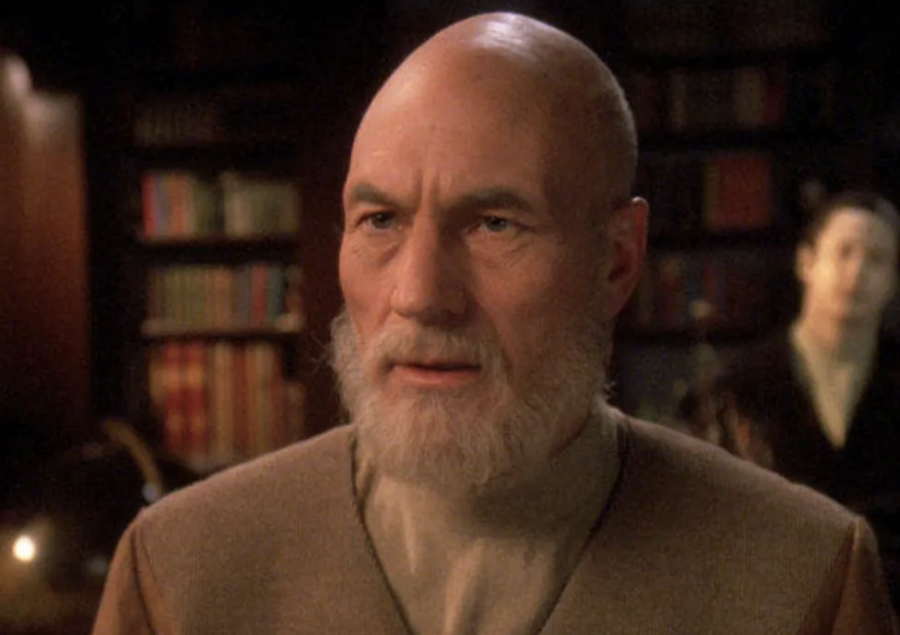
Seven seasons is a great run for any television series, and it was much more than Patrick Stewart bargained for when he first got the gig as Captain Jean-Luc Picard. Although the series concluded in 1994, Picard’s legacy continued on with feature films as well as video games, of which there were many. But his seven-year stint as Picard also afforded Stewart more work, much more.
He was seen in feature films such as Conspiracy Theory and Masterminds and he even nabbed the plum role as Captain (yes, another one) Ahab in the two-part mini-series, Moby Dick.
He lent his voice to animated films such as The Prince of Egypt and Animal Farm and even played Ebenezer Scrooge in the umpteenth retelling of the classic, A Christmas Carol. But six years after TNG aired its final episode, Patrick Stewart found another role that would gain just as much, if not more, notoriety than his time as Captain Picard.
PATRICK STEWART BECOMES THE X-MEN’S PROFESSOR X
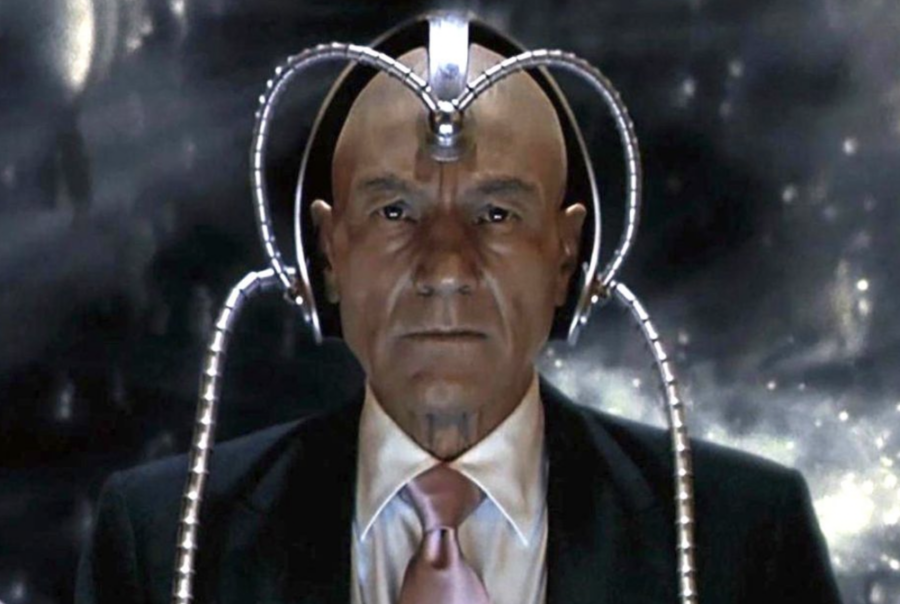
Playing Jean-Luc Picard was a double-edged sword for Patrick Stewart. While it brought him fame and fortune, it also pretty much typecast him in the eyes of moviemakers around Hollywood. The offers he was receiving were not what he had hoped for and he was finding it difficult to even return to the stage, as he had been away from it for so long.
At one point, when asked about his time on TNG, he expressed doubt that he would have taken the job had he known it would last as long as it did. He told the BBC in 2013, “No, no. NO. And looking back now it still frightens me a little bit to think that so much of my life was totally devoted to Star Trek and almost nothing else.” So, if ya can’t beat ‘em, join ‘em.
That is exactly what Patrick Stewart did in 2000 when he accepted the invitation to become Professor Charles Xavier in Bryan Singer’s X-Men. It was a role that Stewart was immediately familiar with, as Professor Xavier in many ways resembled Jean-Luc Picard. Stewart was reluctant to put his John Hancock on another movie franchise, but he was truly interested in working with Singer, so he signed on the dotted line.
It was, in hindsight, a brilliant move. Patrick Stewart’s Charles Xavier has always been one of the bright spots in any of the X-Men films, even if some of the stories leave little to be desired.
Patrick Stewart has played Charles Xavier in seven films – X-Men, X2, X-Men: The Last Stand, X-Men Origins: Wolverine, The Wolverine, X-Men: Days of Future Past, and the critically acclaimed, Logan. He has also lent his Charles Xavier voice to a few video games as well.
One fun surprise surrounding Patrick Stewart and his Professor Xavier character came last year in the Marvel film, Doctor Strange in the Multiverse of Madness. Doctor Strange, after being apprehended by Karl Mordo, Earth-838’s Sorcerer Supreme, is brought before the Illuminati to answer for all the trouble he has caused.
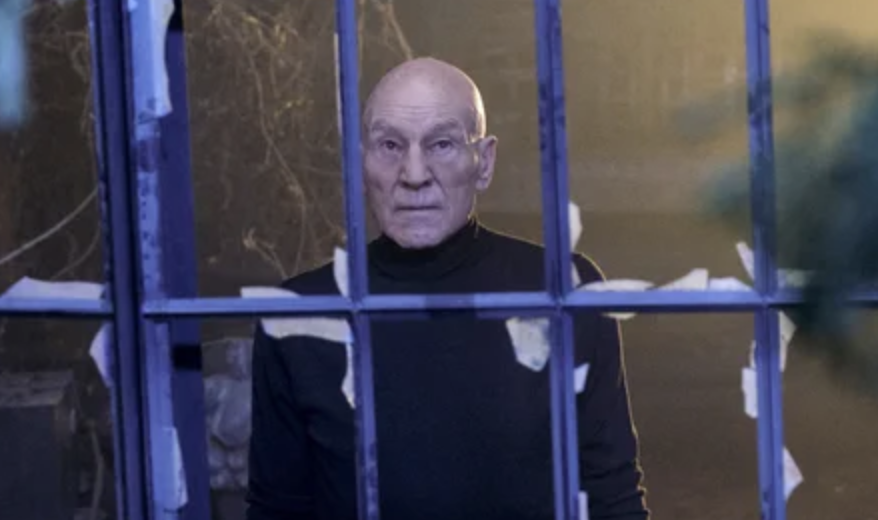
When the Illuminati appeared, they were Chiwetel Ejiofor as Mordo, Hayley Atwell as Peggy Carter, Anson Mount as Blackagar Boltagon, Lashana Lynch as Maria Rambeau, John Krasinski as Reed Richards, and finally Patrick Stewart returning as Professor Charles Xavier.
While the scene wasn’t a long one, it was nice to see Patrick Stewart roll in as Professor X, especially since we all thought he had left that part behind him some five years prior. As the X-Men are slowly preparing to finally join the MCU, would Stewart come back as Professor X or would his age keep him from returning? Would he even want to?
Throughout the years, the success of Star Trek and the X-Men has given Patrick Stewart many options. He has lent his vocal talents to a number of films such as Chicken Little, The Snow Queen, TMNT (Teenage Mutant Ninja Turtles), Lego Universe, Gnomeo & Juliet, The Simpsons, Legends of Oz: Dorothy’s Return, and Sinbad: The Fifth Voyage.
He has also been seen in films such as Match, Green Room, Christmas Eve, Charlie’s Angels, and Coda. And then, just like he did with Professor X, Patrick Stewart returned to the role that put him on the map.
HE RETURNED TO STAR TREK WITH PICARD
There have been many famous robots throughout the many years of moviemaking. There was Robot Model B-9, aka Robot, on the ‘60s series Lost in Space. You had C-3PO and R2-D2 from Star Wars fame.
There was the HAL 9000 from 2001: A Space Odyssey. Of course, we can’t talk about famous robots without mentioning Bishop from Aliens and Arnie’s T-800 from The Terminator. Now, we can add Star Trek’s Picard to the list.
Yes, it’s true. First, that Patrick Stewart returned to the role of Jean-Luc Picard, and second, it was revealed in the first season finale that this new Picard is not like the old Picard because he is, in fact, a robot himself.
It doesn’t start that way for Picard. When we first see him, he is “enjoying” retirement, but still dealing with the death of Data, which happened in the TNG final feature film, Star Trek: Nemesis. Picard is drawn back into the adventure that is Starfleet when the apparent daughter of Data arrives at Picard’s vineyard looking for help. Picard chooses to fight for the “synths” and their right to exist.
Picard takes this fight personally and as the first season finale ends, Picard gives up his life to save them. It is here that all of Picard’s memories, his consciousness, are transferred into a synthetic body. While some critics and fans alike were not pleased with the pace or the departure from the TNG aspect, Picard nonetheless scored high.
PATRICK STEWART HAS BEEN MARRIED THREE TIMES AND HAS TWO CHILDREN
We have done a lot of talking about Patrick Stewart’s professional life, so now let’s dabble into his personal affairs. Stewart has been married three times. The first was to Sheila Falconer in 1966 and after 24 years of marriage, they called it quits in 1990.
From that marriage, Stewart and Falconer had two children. Daniel has followed in his father’s footsteps and is a stage and screen actor. He has actually performed a few times with his father on screen in the 1993 TV movie Death Train, on the sitcom Blunt Talk, and even got to star with him on Star Trek: The Next Generation, playing his son in the episode The Inner Light.
He also has a daughter named Sophia, though we are unsure what she does for a living. She has been seen with him at a number of red carpet events.
Of his children, Patrick Stewart has expressed regrets about his busy career and how it took him away from them. He told The Independent in 2009 just how obsessed he was with his career when his daughter was young, saying, “I could’ve done better as a parent, when my kids were little.”
“I was just obsessed with my work and everything else took second place. I’m trying to correct that now wherever possible with my grandchildren. And my own children seem to have forgiven me.”
Patrick Stewart remained unmarried for seven years before he got engaged to Star Trek: The Next Generation producer, Wendy Neuss. They eventually married in August 2000, but it wouldn’t last. Three years later, Stewart and Neuss would divorce.
Stewart did have another long-term relationship, although this one did not end up in marriage. He met actress Lisa Dillon on a production of The Master Builder in 2003 (four months before his divorce from Neuss) and the two became romantically involved. It was a relationship that would last until 2007.
In 2008, Patrick Stewart was in New York performing Macbeth at the Brooklyn Academy of Music, when he met his third wife, Sunny Ozell. The singer/songwriter was working as a waitress at a restaurant called Franny’s when Stewart took notice of her and vice versa.
Stewart and Ozell, who enjoy a very private life, did explain their meeting in a 2015 interview. “We met at a restaurant and it wasn’t a ‘can I join you?’ kind of moment, it was a different moment,” Stewart began before Ozell popped in. “He had been working at the Brooklyn Academy of Music, which is down the street from the restaurant that I’d been working in at the time,” Sunny offered. “He sat at the bar and we just got talking, the rest is history.”
“I gave her my phone number and that’s the only time in my life that I’ve ever done that, but only because she wanted to see our show in Brooklyn and it had sold out.” What makes Patrick Stewart’s third marriage somewhat of an eyebrow-raiser is that when they married in 2013, Stewart was 73 years old. Ozell, at the time, was 35 years old.
Patrick Stewart’s wife is an accomplished singer. Her musical stylings lean towards jazz and soul. She has released two albums. The first came out in 2015, an 11-track album titled Take it with Me. Her second album, a 10-track album titled Overnight Lows, was released in 2020.
Sunny Ozell also released a single in 2015 called “Git Gone,” which came from her Take it with Me album.
SIR PATRICK STEWART’S BEST FRIEND REALLY IS SIR IAN MCKELLEN
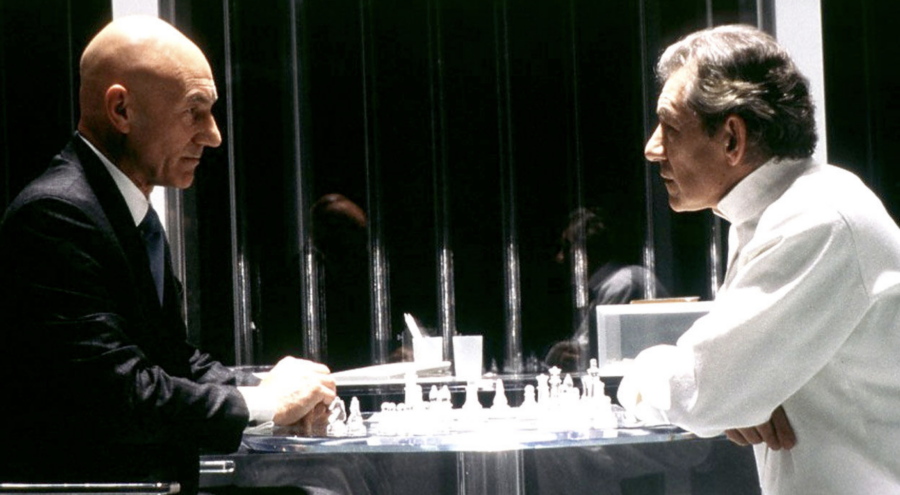
Mention Patrick Stewart and sometimes the instinct is to include Ian McKellen. The two have been best friends for a long time now and McKellen factors in mightily in the nuptials of Stewart and Ozell, for he was the man who married them, not once, but twice.
Before we get to that, though, Patrick Stewart and Ian McKellen have known each other over for over 40 years now, but only truly became close 23 years ago when they starred in X-Men, Stewart as Professor X and McKellen as the big bad guy, Magneto. As Stewart explains how their friendship began to build, it was from the massive amounts of downtime they experienced on the set of X-Men.
“On those kind of movies, you spend more time sitting in your trailer than you do in front of the camera,” Stewart said in 2020 on Wired’s Web’s Most Searched Questions YouTube series. “So, Ian and I hung out together, drinking tea — and maybe in the afternoon, something a little stronger — and we got to know one another.”
They met years before on stage in 1977 working on Tom Stoppard’s Every Good Boy Deserves Favour for the Royal Shakespeare Company. It was more work than fun back in the day, so they never were able to take the time to get to know each other. Bryan Singer’s X-Men changed all of that.
Since that first film together, both Patrick Stewart and Ian McKellen have reprised their roles in more X-Men films like X2, X-Men: The Last Stand, The Wolverine, and X-Men: Days of Future Past. Not only that, but the two have performed on stage a number of times together, this last one is a combination play called Two Plays in Rep, which is Harold Pinter’s No Man Land and Samuel Beckett’s Waiting for Gadot.
It is obvious the love and respect the two have for one another and it was never more evident when Patrick and Sunny asked Ian if he would officiate their wedding. Honored to do so, Ian took to the internet to become ordained. While he was happy to do so, the couple and Ian ran into a bit of a snafu when he performed the ceremony on the Nevada side of Lake Tahoe.
“We learned that (McKellen) could not use his (ministry) credentials in Nevada, which is where we were getting married,” Patrick Stewart explained on Jimmy Kimmel Live!, though it wasn’t to Kimmel he told the story, but instead to guest host, Mayor Pete Buttigieg. “… so we invited Ian and two of our guests and a (theater) director to a Mexican restaurant for dinner,” he said. “And they were really closing down when we got there, it was pretty late. And Ian had brought with him a kind of robe — but our guests had no idea what was happening. And in fact, we were formally married in a Mexican restaurant.”
PATRICK STEWART WAS KNIGHTED
Besides their friendship, Patrick Stewart and Ian McKellen have another thing in common – they both were knighted by the late Queen Elizabeth II. For Stewart, his monumental day came in 2010 and it was “an unlooked-for honor.”
He gave a special shoutout to a former English teacher as Stewart was being knighted at Buckingham Palace. “Although many people in my life have had a great influence on me, without this man none of it would have happened.”
Patrick Stewart then spoke about his childhood heroes. “But as I grew up as a child, falling in love with the theatre and Shakespeare, my heroes were Sir Laurence Olivier [and] Sir John Gielgud,” he continued.
“The knights of the theatre represented to me not only the pinnacle of the profession but the esteem in which the profession was held. To find myself, to my astonishment, in that company is the grandest thing that has professionally happened to me.”
PATRICK STEWART IS VERY ACTIVE ON INSTAGRAM
If there is one thing Patrick Stewart is not shy about it is posting pictures on his social media account, Instagram. Stewart constantly populates his Instagram with various pictures of him and Sunny, he and Sir Ian, and of any project he is working on. Apparently, he also loves to read and not only with Sir Ian.
No, Patrick is an avid reader and has no trouble showing off that fact. He has even posted numerous videos of him reading sonnets.
Latest Patrick Stewart News
Star Trek’s Worst Movie Redeems Beloved Character
Most fans of the franchise find Star Trek: Insurrection to be a huge disappointment, which is understandable: following up the …
Continue reading “Star Trek’s Worst Movie Redeems Beloved Character”
All The Star Trek Movies Currently In The Works
With the alarming rate at which we get updated on developing projects, shelved projects, series renewals, and series cancellations, it’s …
Continue reading “All The Star Trek Movies Currently In The Works”
Star Trek Erasing William Shatner’s Captain Kirk?
After Patrick Stewart revealed last week that a new Star Trek script was in development with the promise of a …
Continue reading “Star Trek Erasing William Shatner’s Captain Kirk?”
Patrick Stewart Reveals Star Trek: Picard Movie On The Way, Here’s What We Know
Since the end of Star Trek: Picard, Patrick Stewart has been talking about a film that would build on what …
Continue reading “Patrick Stewart Reveals Star Trek: Picard Movie On The Way, Here’s What We Know”
Patrick Stewart Saved Us From Awful Star Trek Movie, Picard Was To Murder Data
Star Trek: Insurrection was poorly received when released in 1998 and is considered an ill-thought-out Star Trek movie. Thanks to …
Continue reading “Patrick Stewart Saved Us From Awful Star Trek Movie, Picard Was To Murder Data”
The Star Trek Movie That Brought Patrick Stewart To Tears
Aside from William Shatner and Leonard Nimoy, Patrick Stewart may be the name that most associate with Star Trek. The …
Continue reading “The Star Trek Movie That Brought Patrick Stewart To Tears”
The Star Trek Movies: What’s The Best Order To Watch Them In
The best way to watch the Star Trek franchise is to start with the Motion Picture and finish with Star Trek Beyond
Patrick Stewart Almost Ruined Star Trek: Picard Series Finale
In the vast universe of television, crafting a satisfying ending for a beloved series is akin to navigating a spaceship …
Continue reading “Patrick Stewart Almost Ruined Star Trek: Picard Series Finale”
Patrick Stewart Never Thought His Famous Star Trek Co-Star Would Last In Hollywood
Patrick Stewart’s revealing new memoir has the man behind Picard sharing insights about his experience working with a young Tom …
